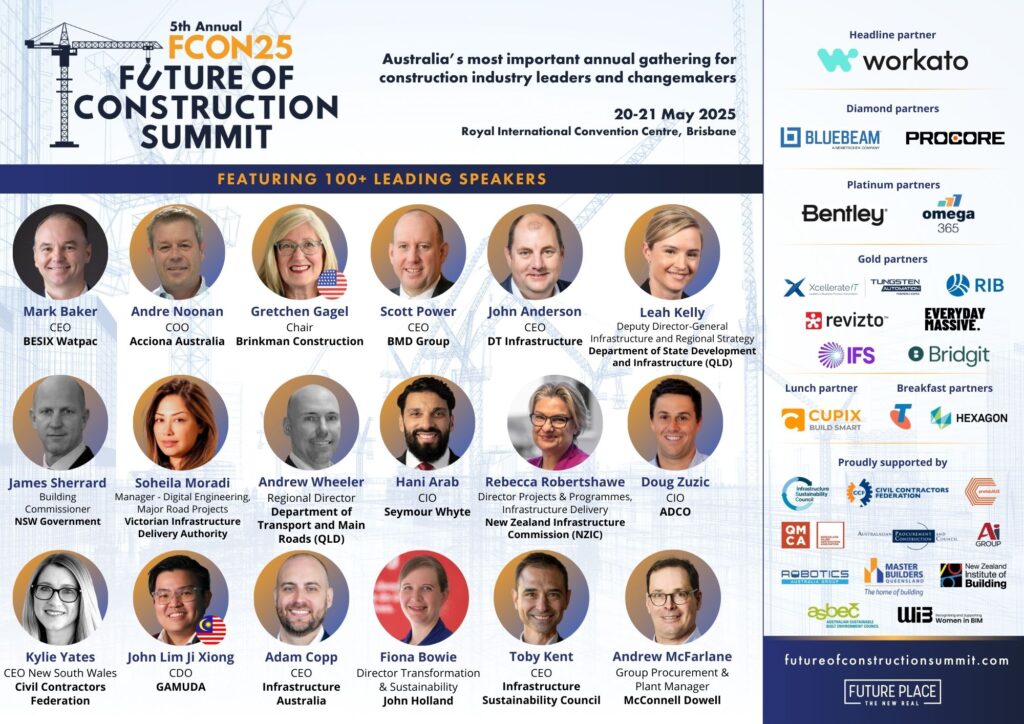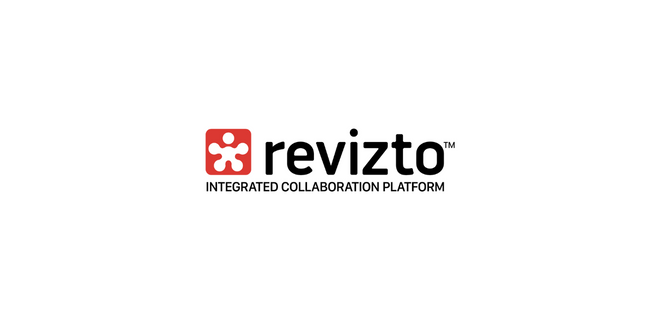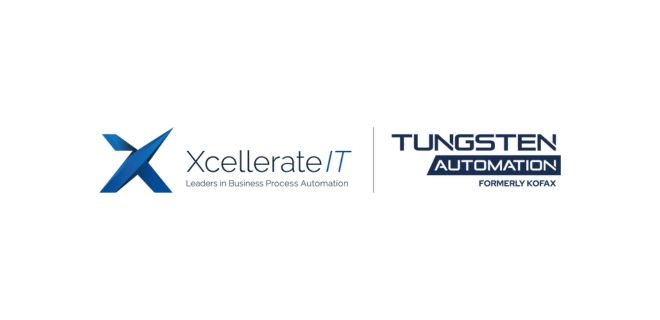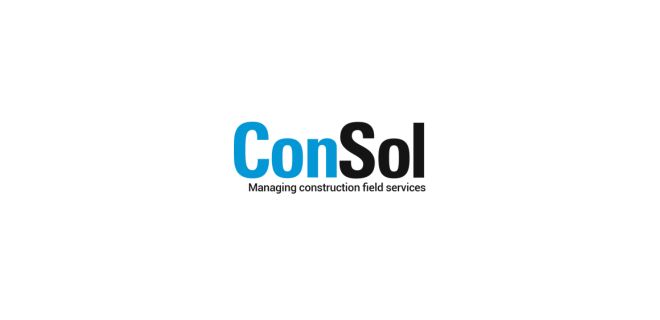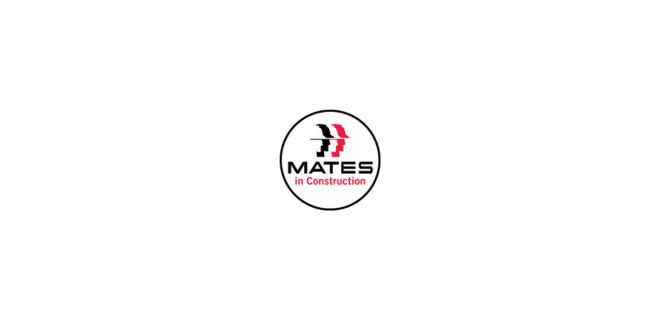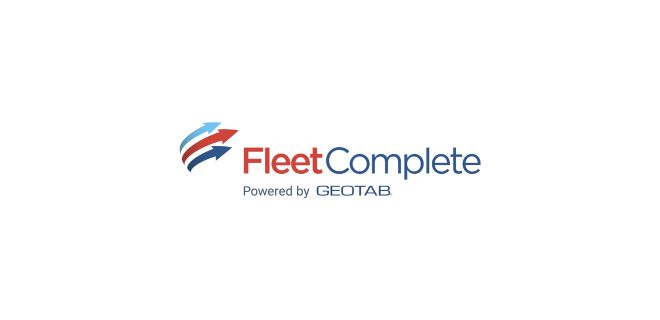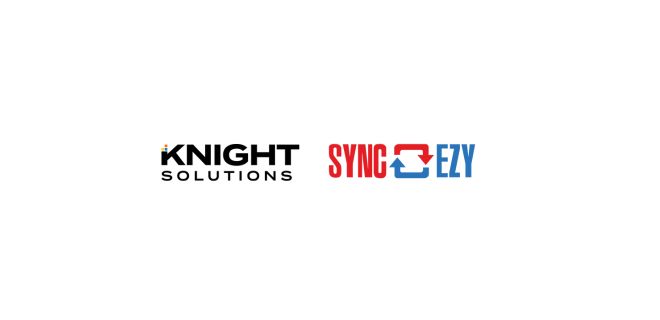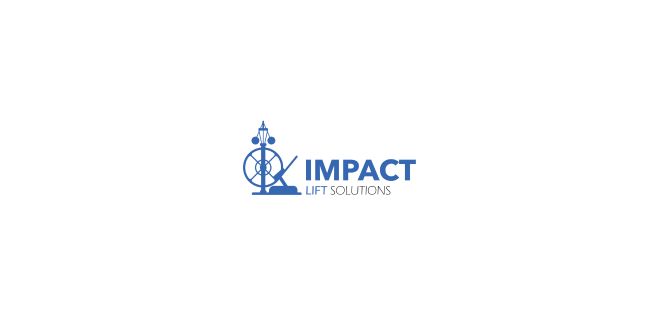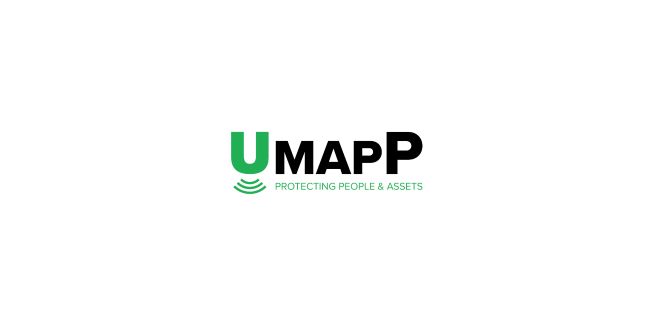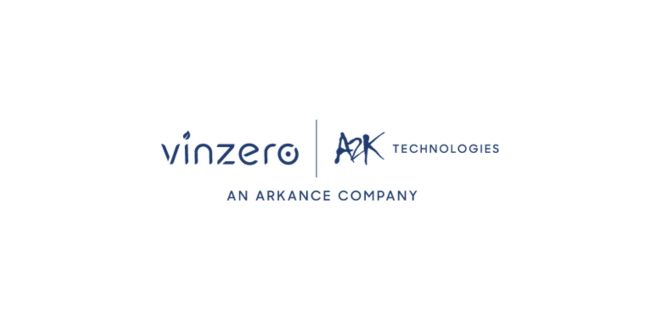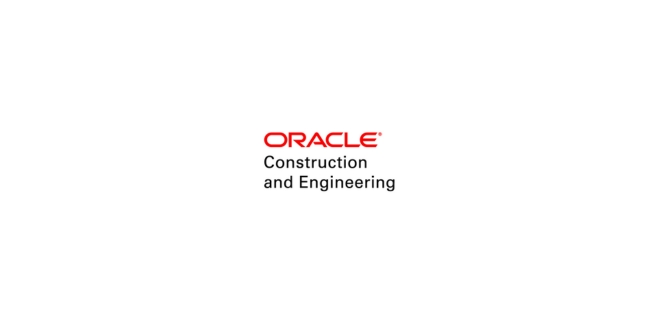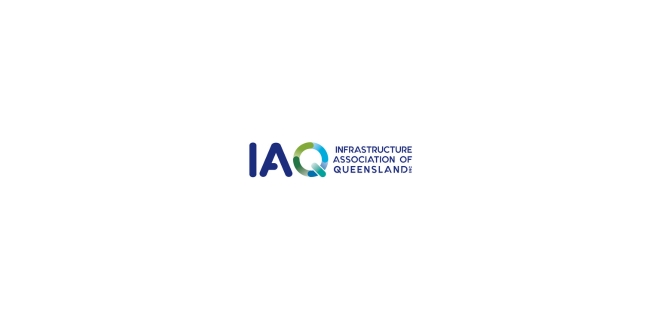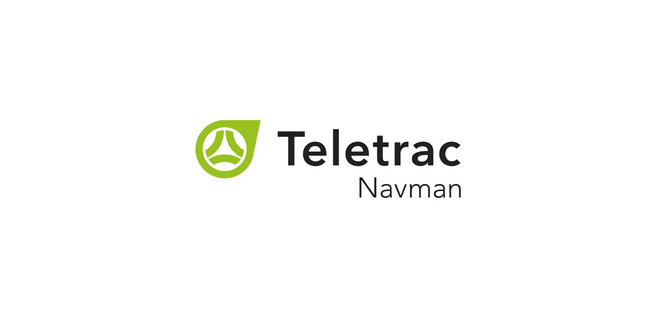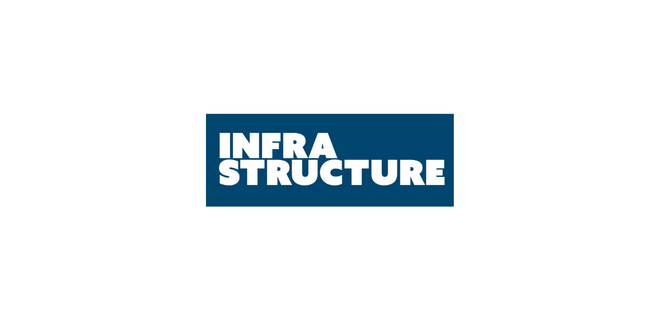@my_event_day
- Tuesday,20 May 2025
- 8:00 AM – 5:00PM
- Royal International Convention Centre,Brisbane
- 600 Gregory Terrace,Bowen Hills QLD 4006
- (+61) 405 973 022
MODERN METHODS OF CONSTRUCTION
Join us for an in-depth exploration of the Modern Methods of Construction (MMC) at the Future of Construction Summit, as we focus on the revolutionary potential of Design for Manufacturing and Assembly (DfMA), Prefabrication, and Offsite Construction. Track 2 will highlight how these innovative approaches are transforming the Australian construction landscape, driving sustainability, and meeting the industry’s urgent needs for efficiency, quality, and resilience.
This dedicated track will feature leading experts, industry pioneers, and global thought leaders discussing the latest advancements, opportunities, and challenges in MMC. Attendees will gain a deep understanding of how DfMA, modular construction, and offsite techniques can not only streamline project delivery but also address critical issues like supply chain disruptions, the housing crisis, and decarbonisation in construction.
With a strong focus on practical applications, policy development, and industry standards, Track 2 is your opportunity to learn from international case studies, collaborate with experts, and explore the future of construction in a rapidly evolving industry.
Check the Track 2 dedicated sessions:
Day 2 | Wednesday 21st May, 2025
TRACK 2:
MODERN METHODS OF CONSTRUCTION
Chair’s welcome remarks:
AUSTRALIA'S MODULAR CONSTRUCTION – A BEACON OF OPTIMISM AMIDST INDUSTRY CHALLENGES
The benefits of modular construction are clear, and its potential to transform the industry is immense.
- The move to prefabrication and modular construction for key stakeholders
- Offsite Manufacturing Realities: Challenges and growth strategies in the construction industry
- Tackling supply chain, factory, and workforce issues in offsite manufacturing growth
-Risk mitigation and opportunity maximisation in offsite manufacturing
INTERNATIONAL KEYNOTE ADDRESS: Modernise or Die: Examining the lessons learned from UK in attempting production model reform
Mark Farmer authored the UK government review, Modernise or Die, back in 2016. It set out a burning platform of declining workforce numbers, productivity and quality, all driven by a dysfunctional industry model. The move towards Modern Methods of Construction (MMC) was highlighted as a crucial means of preserving future capacity . Since that point, the UK has been on a rollercoaster journey of political support and industry progress followed by economic turmoil, business model setbacks and now a market reset. In this session, he will set out:
- The context for why MMC is so important – drivers for change
- The initial UK government response to Modernise or Die
- The reasons for failure of MMC market to reach maturity in UK
- The new trajectory for modernisation of construction techniques
- The role of government in initiating and sustaining change
Building faster, cheaper, better: why Modern Methods of Construction must play a critical role in driving our country’s productivity uplift and help solve our housing crisis
In this session we make a deep dive into how MMC can drive productivity and increase housing supply including the conditions for MMC to succeed, what good looks like locally and globally, and the achievable savings in costs and time. This session will include a case study of Homes NSW’s MMC Program, being undertaken in partnership with Building 4.0 Cooperative Research Centre, to deliver quality social housing faster.
CASE STUDY: Examining the current and future implementation of MMoC across Queensland Health’s infrastructure pipeline
In this session we dive into how MMoC can drive productivity and reduce project risks in the delivery of healthcare services within Queensland. James will talk to the conditions for MMoC to succeed including early engagement, what good looks like locally and the achievable savings in costs, quality and time.
Tasked with meeting the healthcare demands of an ever-growing population, Queensland Health’s commitment to delivering additional capacity across the state has produced a series of trailblazing innovations set to guide the Australian healthcare industry into the future.
PANEL: How modular construction can meet the urgent and critical need for more housing, healthcare, data centre, transport facilities and other infrastructure projects in Australia
In this panel you’ll hear industry stakeholders discuss how the shift towards prefabrication and modular construction is anticipated to enhance efficiency and productivity, drive growth in specific industry segments, meet the evolving needs of communities and contribute to a more resilient and prosperous Australian construction sector. With urgent need for housing, schools, Data Centres, Hospitals and more, this session will explore how DfMA can be used to achieve our urgent construction goals.
Networking luncheon and exhibition viewing
TRACK 2:
MODERN METHODS OF CONSTRUCTION
An overview of DfMA and the offsite industry within Australia. Examining the different approaches of each state towards its adoption and standards
The benefits of modular construction are clear, and its potential to transform the industry is immense. In this session we hear about how the adoption has been across Australia and how different states are approaching the sector in order to foster greater adoption and develop industry best practice.
- What is the state of play within Australia and where do we sit against other countries?
- Examining the approaches of different states towards DfMA and MMC
- Defining policy and developing appropriate industry standards
- Understanding DfMA’s role as a tool in decarbonising construction
PANEL: The Crystal Ball - Unlocking innovation, design & investment to foster a sustainable offsite modular construction sector
Modern methods of construction, DfMA and offsite construction, are increasingly becoming integral to the longevity of our buildings, the creation of a thriving and sustainable construction industry, and a resilient future for all. This panel will explore the benefits of offsite construction and why increased investment and policy are essential to improving the procurement process, encouraging innovation, and driving widespread uptake. The session will also examine the sustainability benefits of offsite construction and the economics required to make it a thriving industry in Australia.
- Looking at the economics involved to foster more investment into MMC and DFMA across Australia
- Fostering a vibrant and viable model for the industry
- Examining the benefits from mitigating risk, reducing timescales and reducing embodied carbon and beyond
- Getting the best of both worlds by incorporating onsite and offsite construction models
INTERACTIVE ROUNDTABLES
In the Fourth and final of these Roundtable discussions we bring together MMC & DFMA audience members to participate in a 30-minute interactive roundtable discussion, led by multiple industry experts on a number of pertinent topics and industry themes. Join the table that most interests you and discuss the latest opportunities and industry trends and brainstorm solutions to common challenges with likeminded individuals. Roundtable 1: Exploring finance and insurance matters when it comes to DfMA in Australia Led by: Martin Fenn, Director, MMCi & MMC Lead, CIOB
Roundtable 2: Defining policy and developing appropriate industry standards Led by: Gerard de Valence, Economist, Construction Economic Research
Roundtable 3: Building better buildings with MMC Led by: Daryl Patterson, Project Lead, Building 4.0 CRC
Roundtable 4: Incorporating Biophilic Design for more sustainable modular construction Led by: Ozge Fettahlioglu, Managing Director, Boxareno Modular Constructions
Roundtable 5: Using technology to deliver projects faster, safer, better with less waste and risk Led by: Murray Ellen, Founder & Executive Chairman, PT Blink
Chair’s closing remarks
Closing networking reception and final exhibition viewing
Join us for the final opportunity for delegates, speakers and exhibitors to connect, network and share a drink
Close of FCON25
Know the Track 2 assigned speakers:
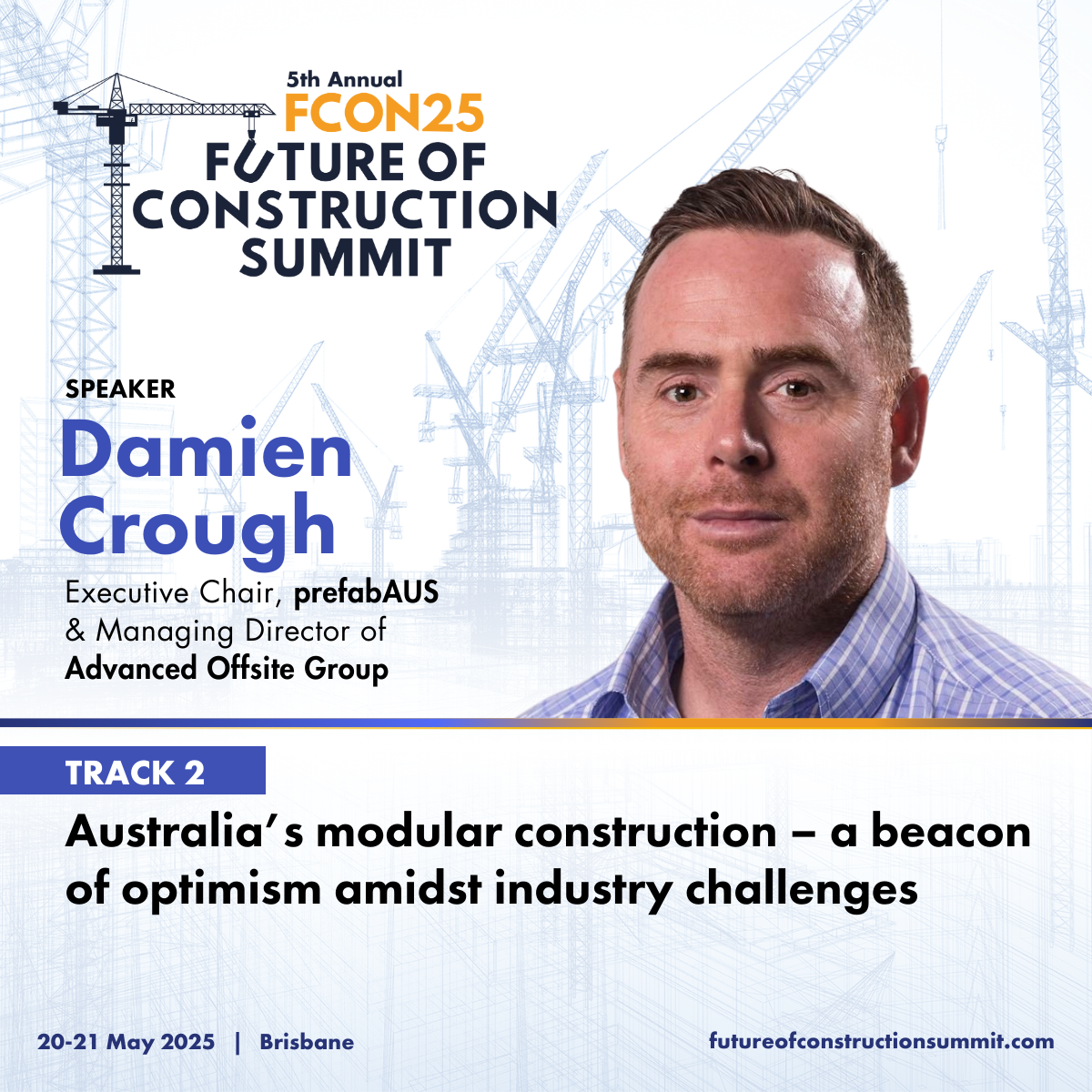
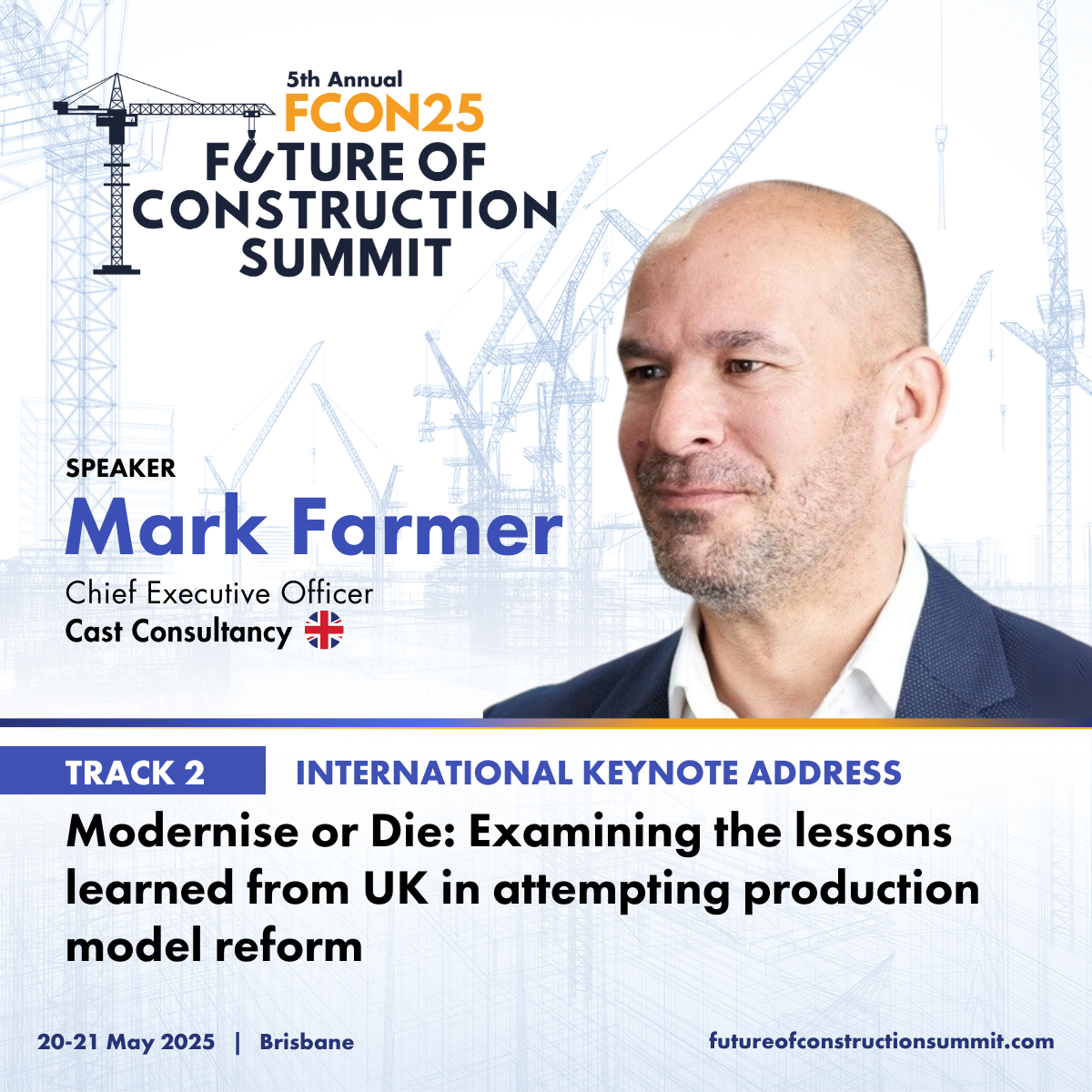
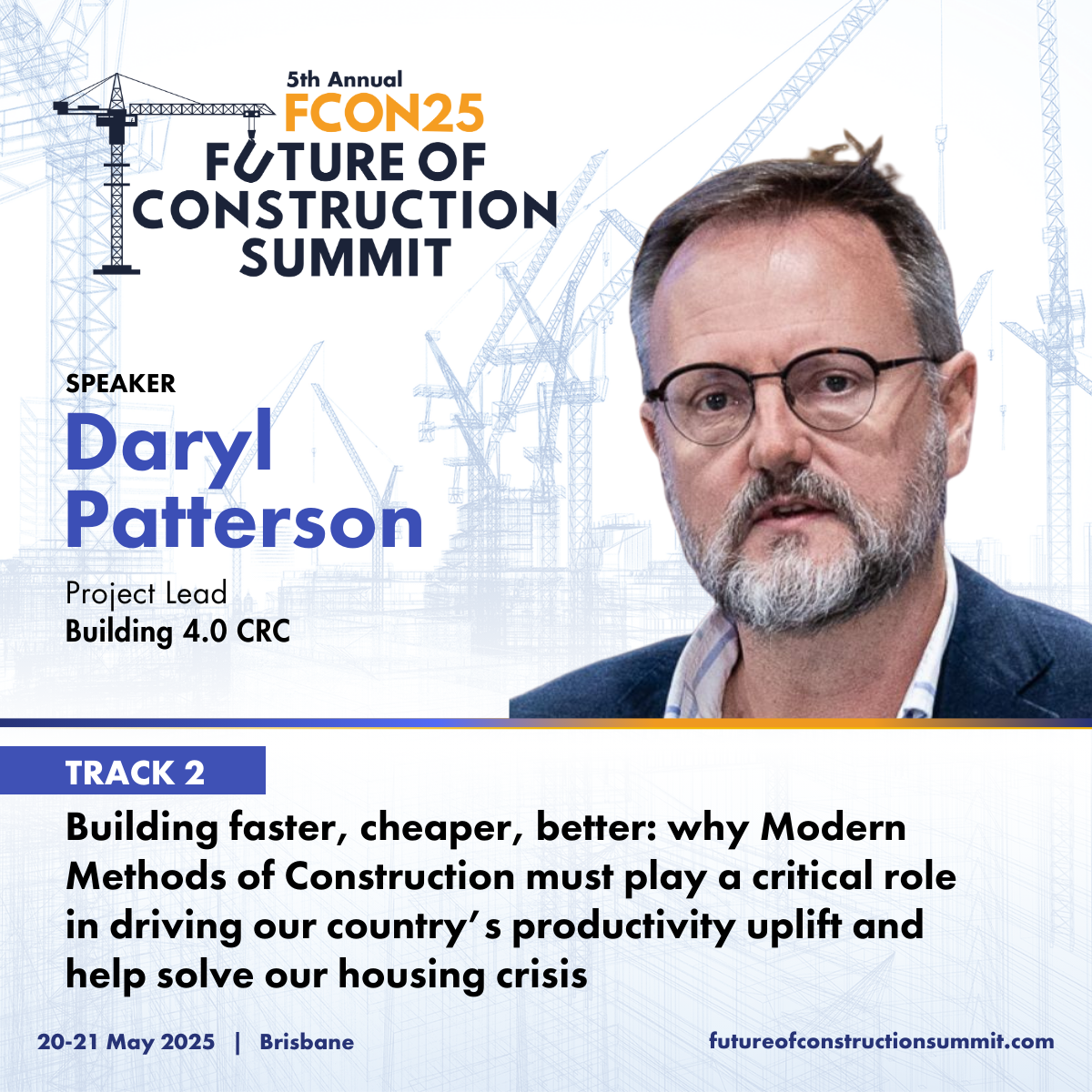
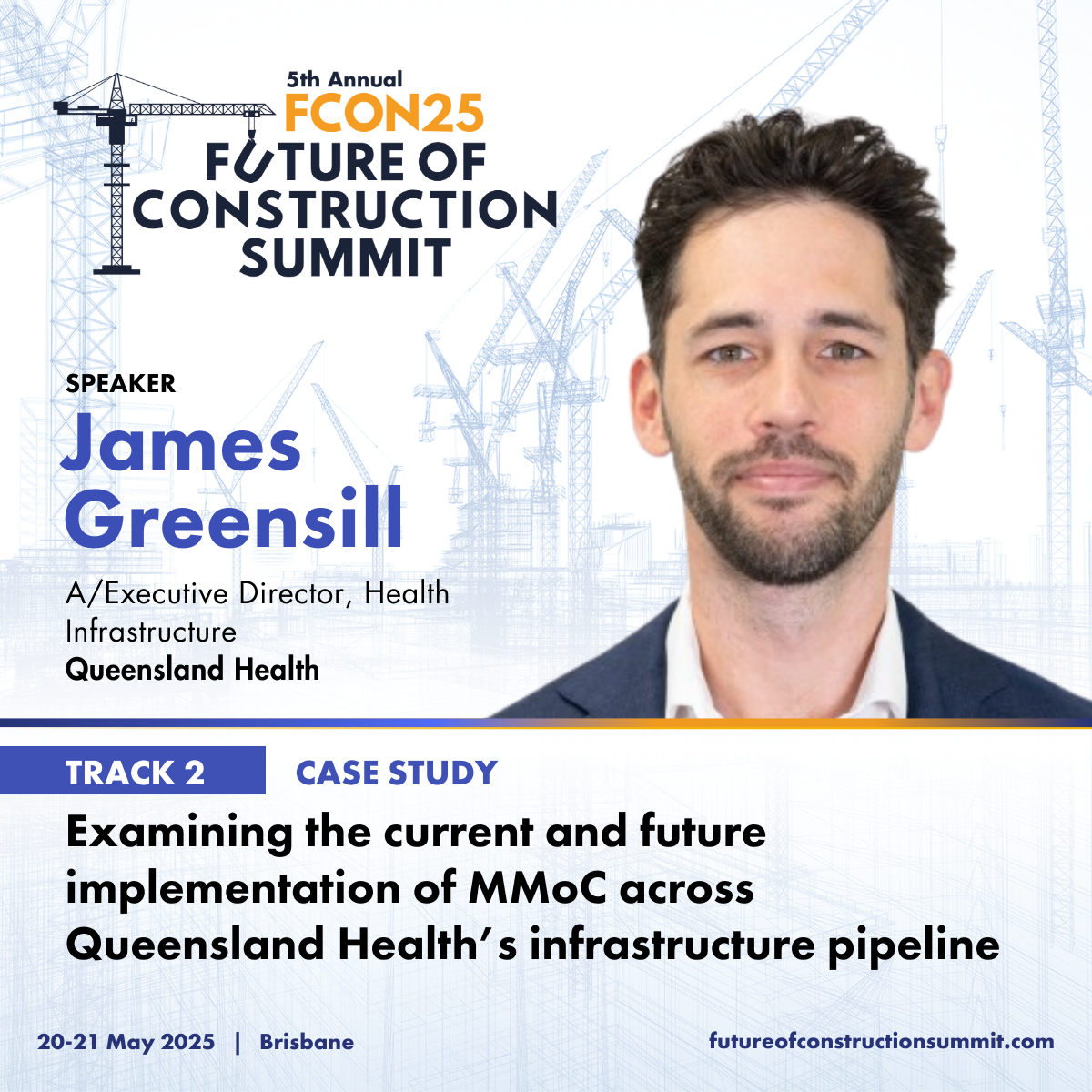
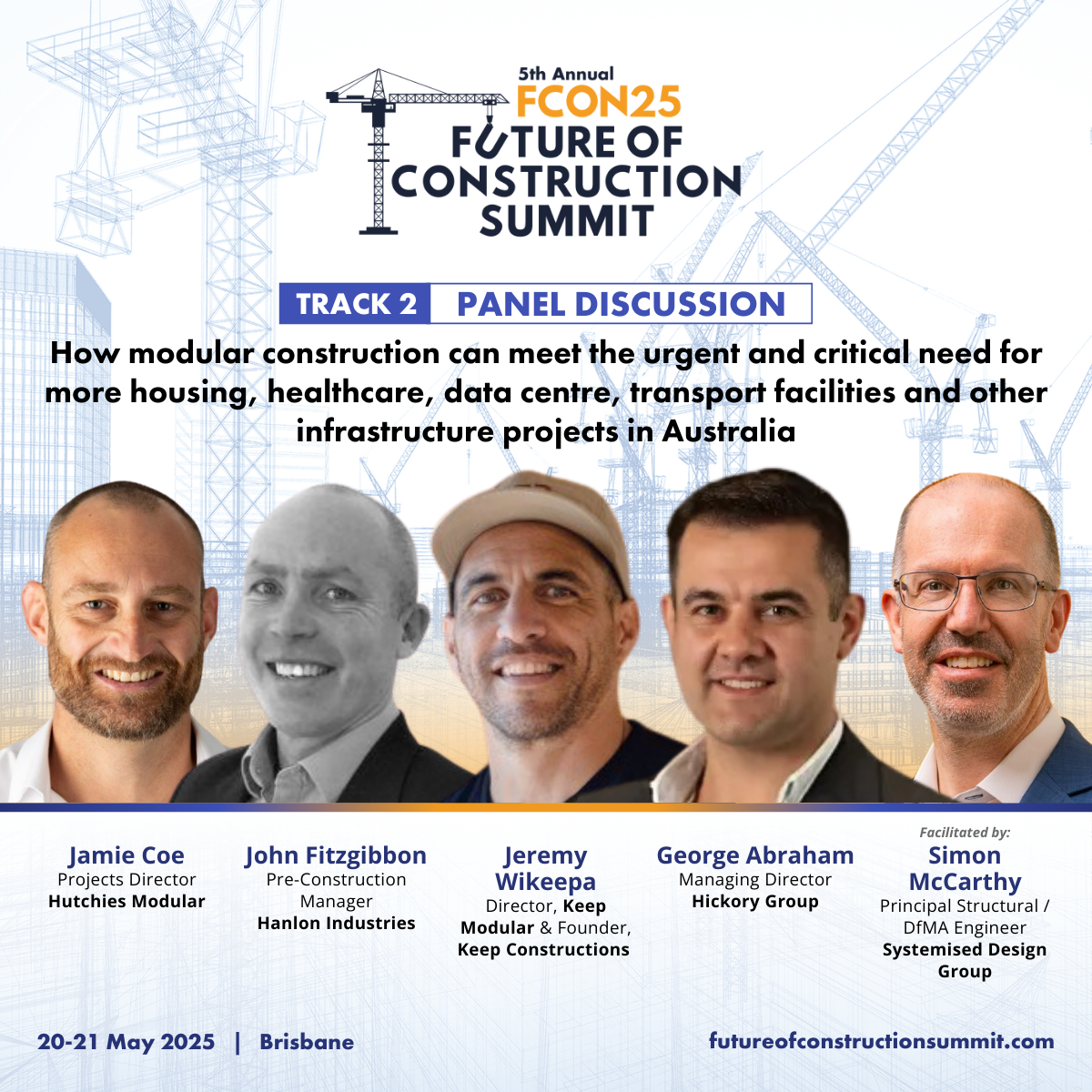
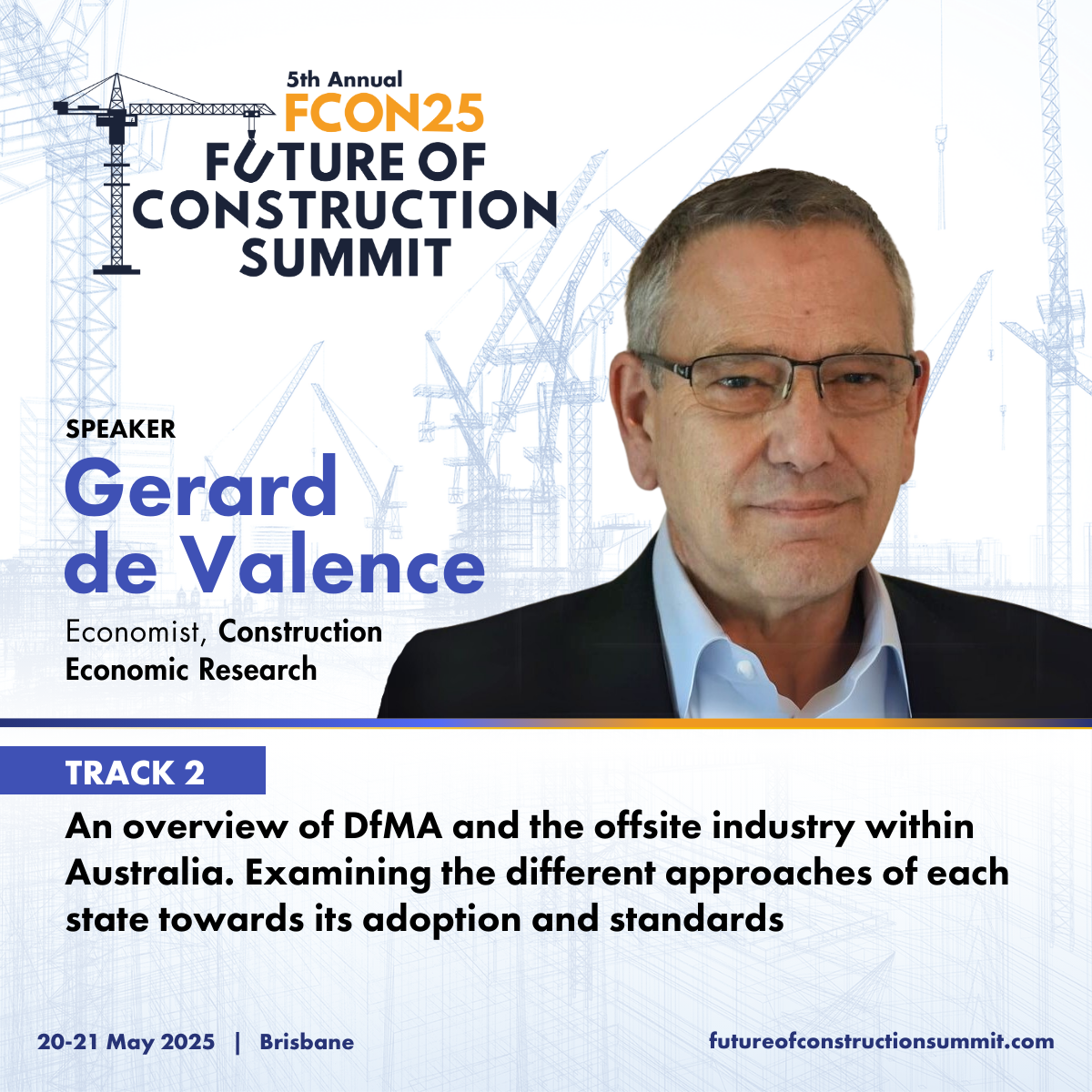
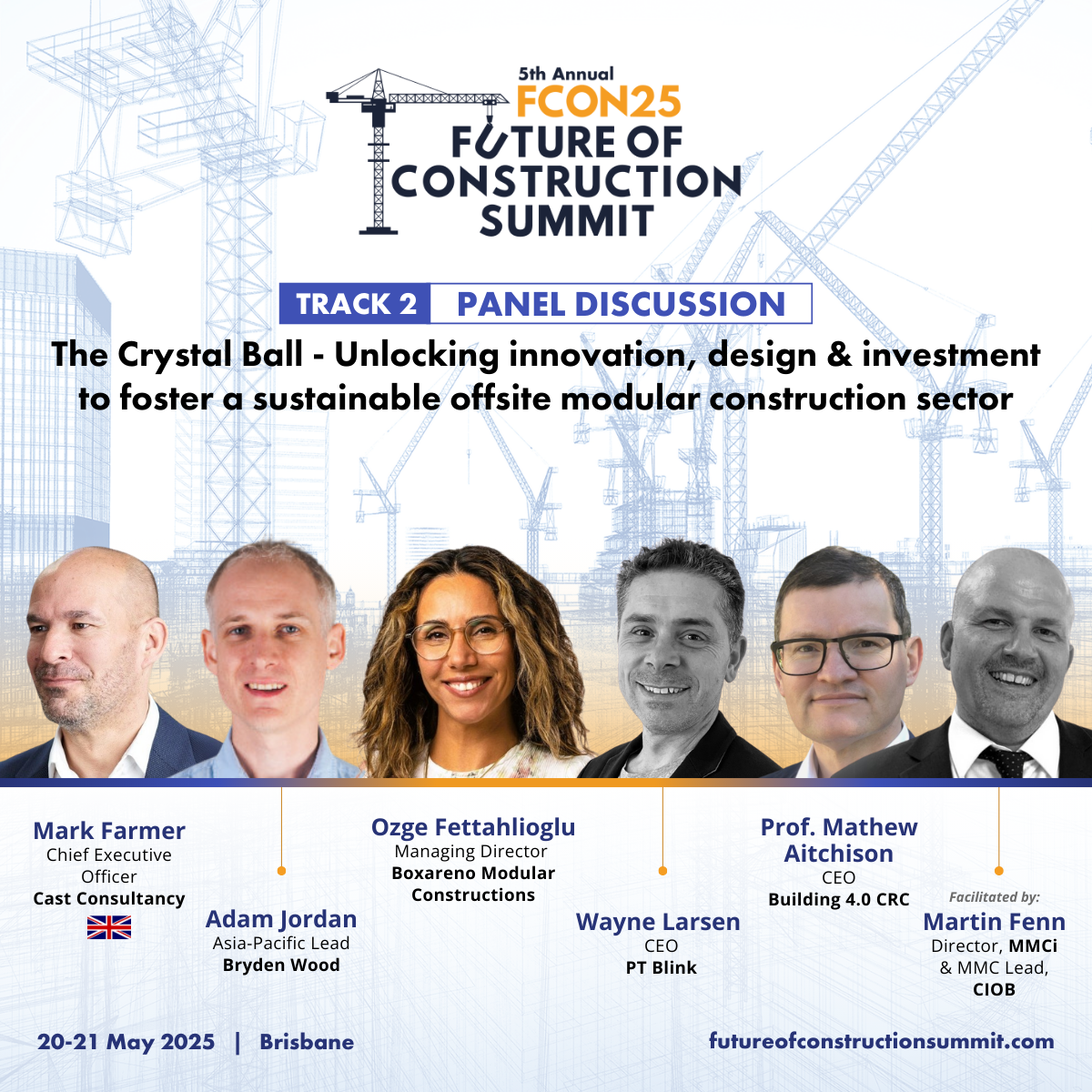
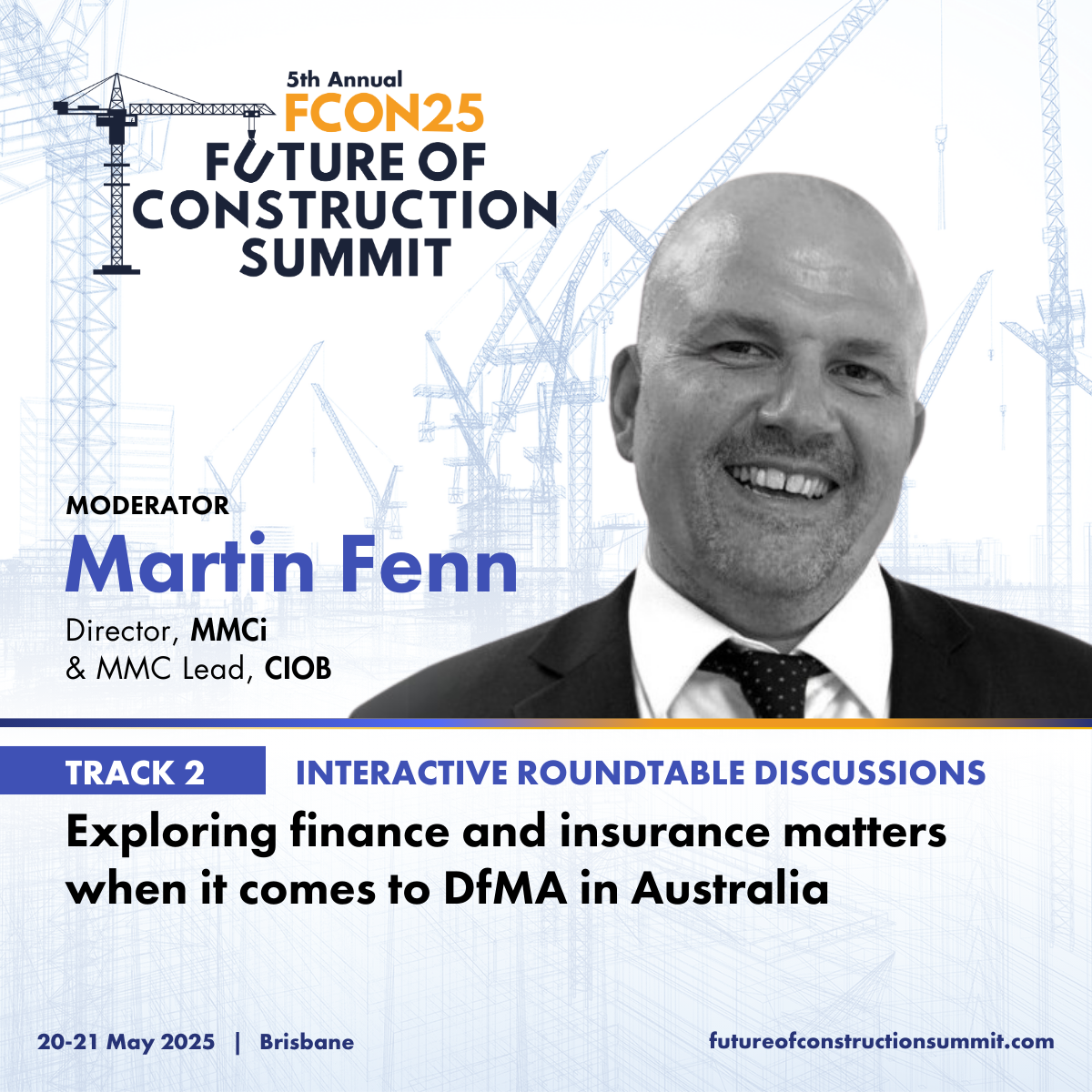
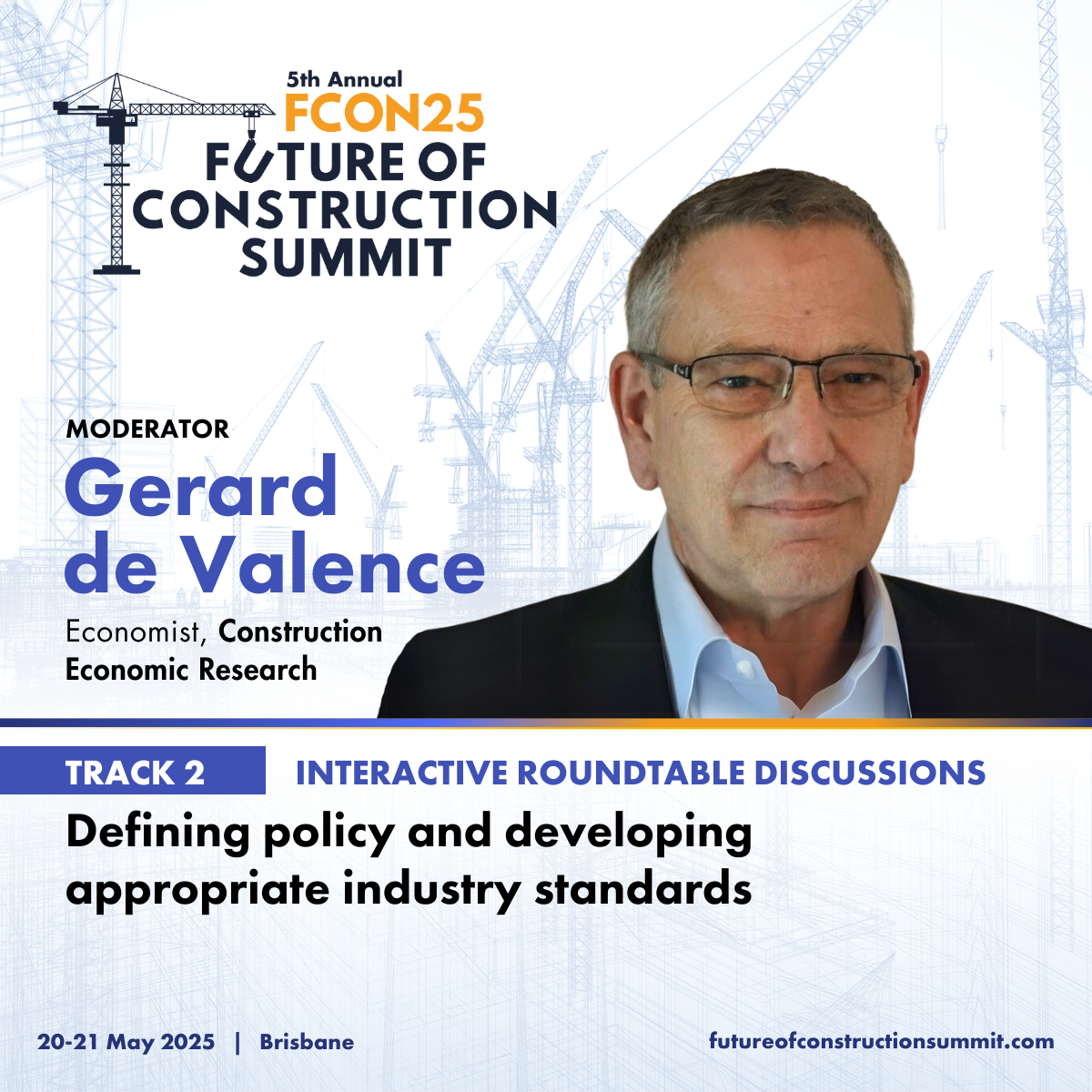
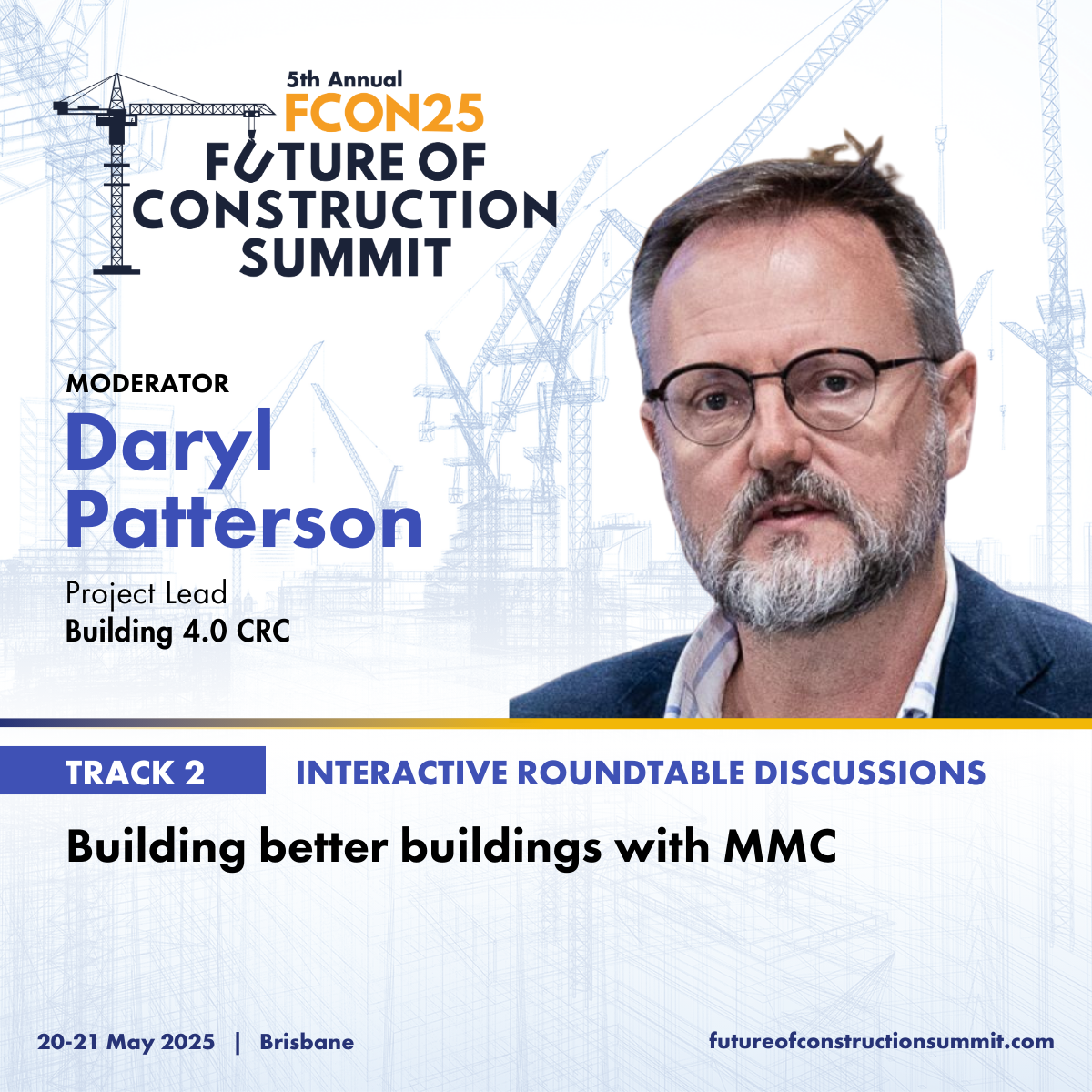
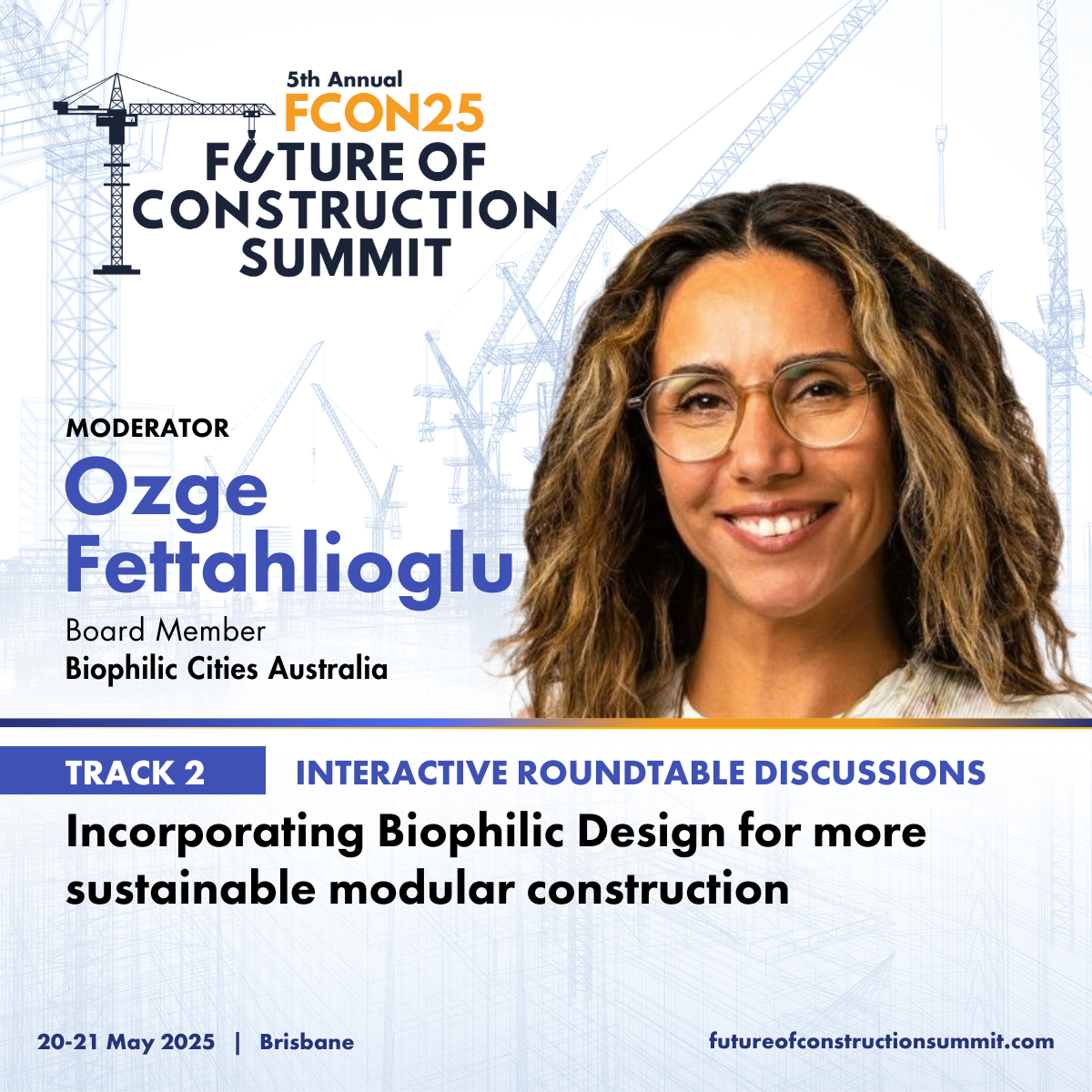
Sessions & Speakers
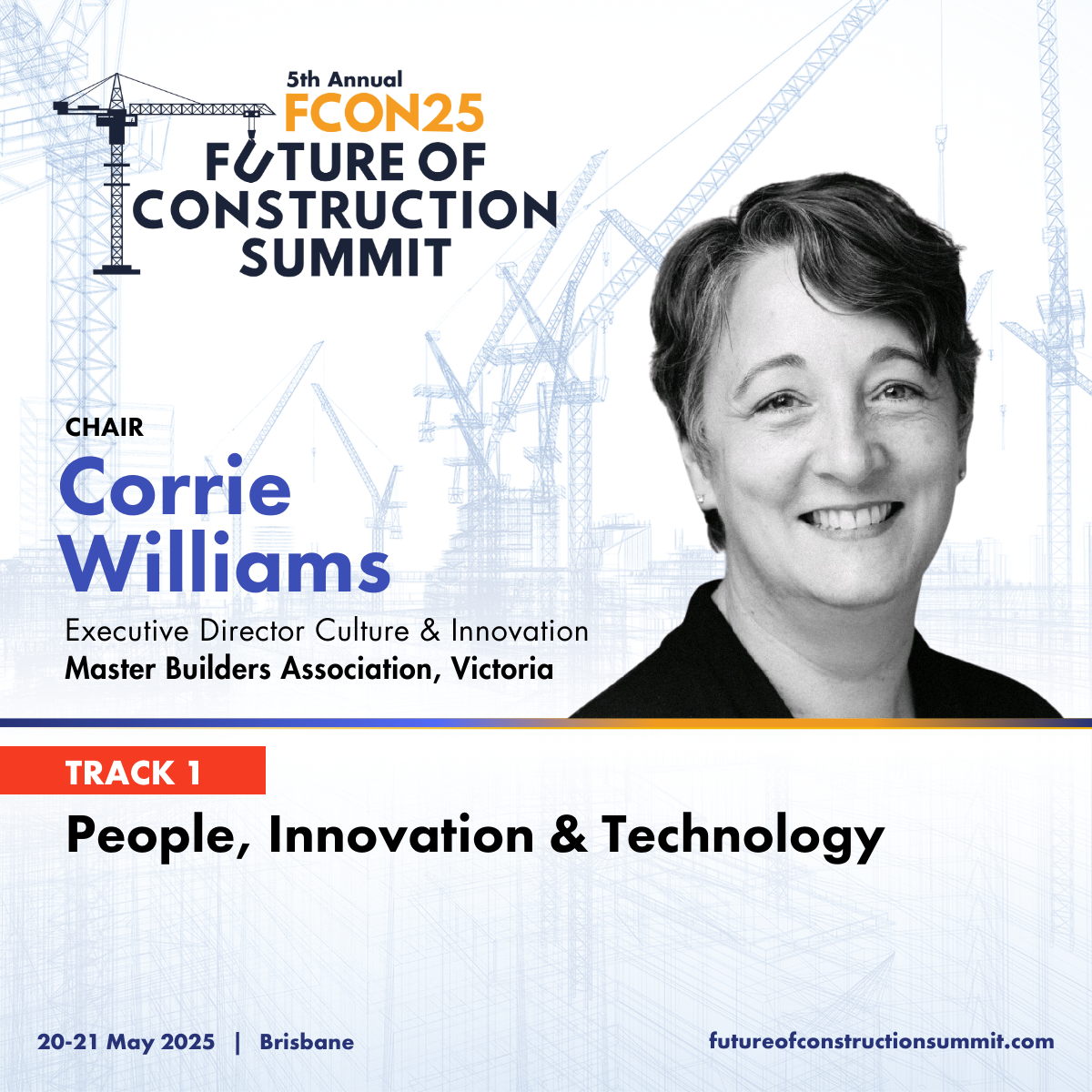
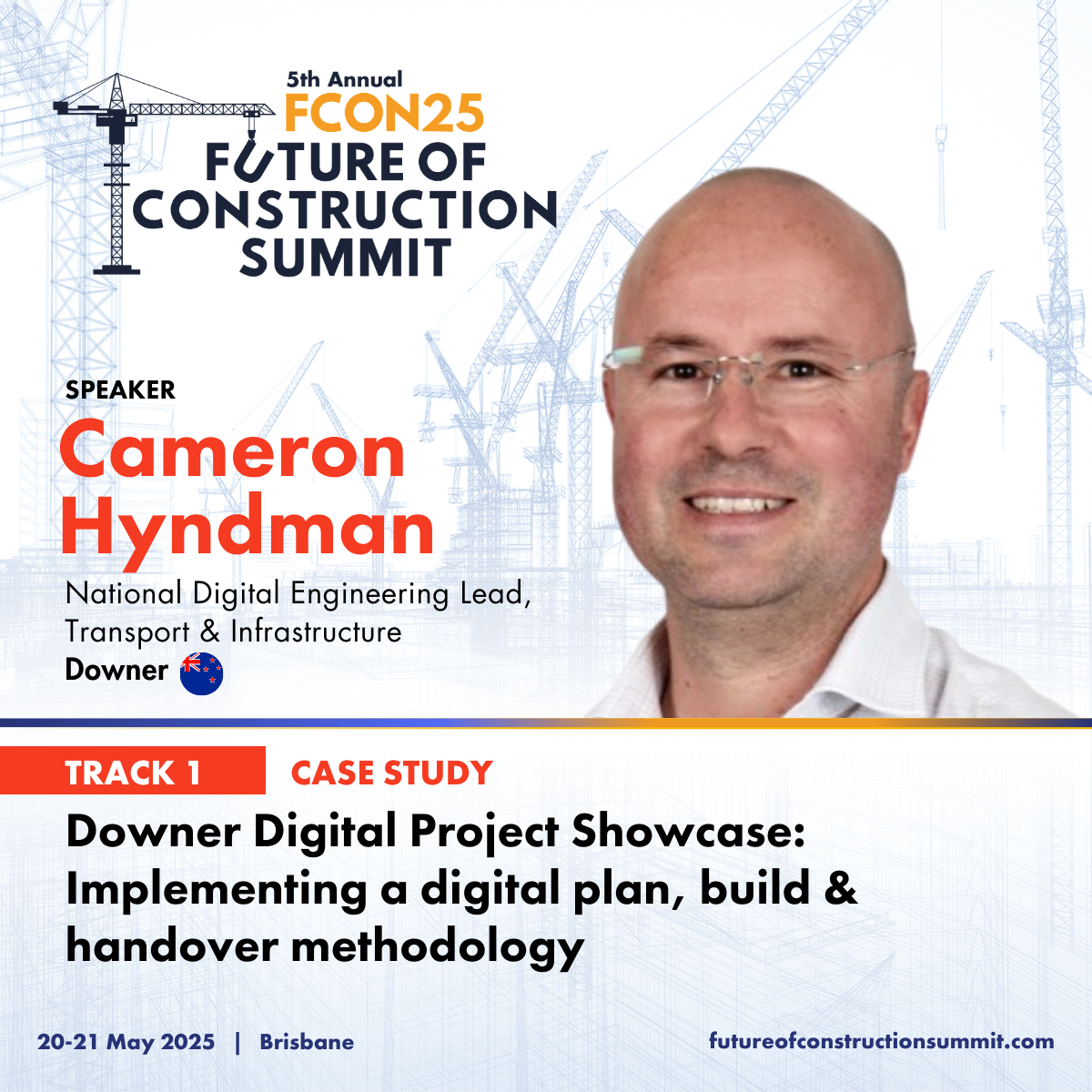
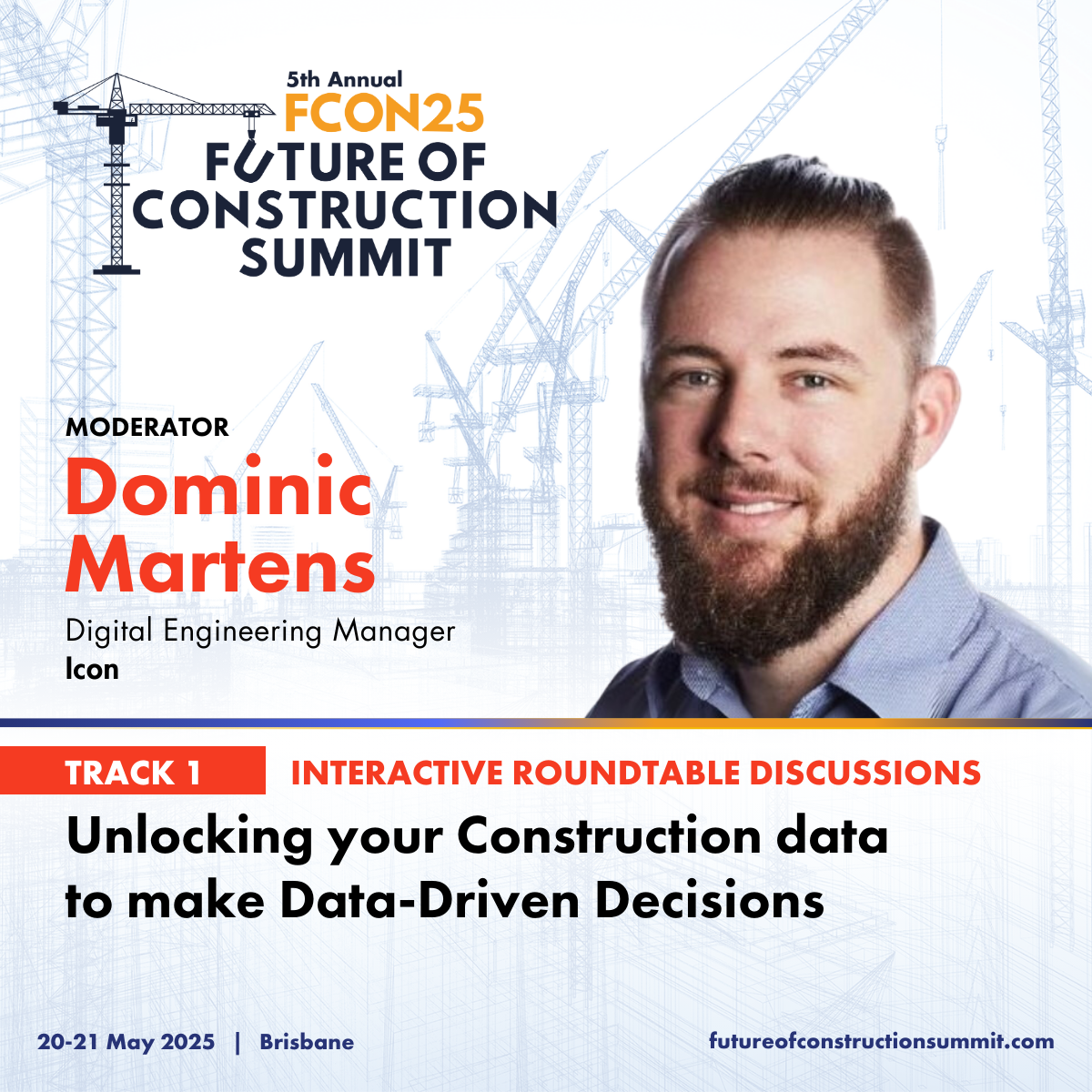
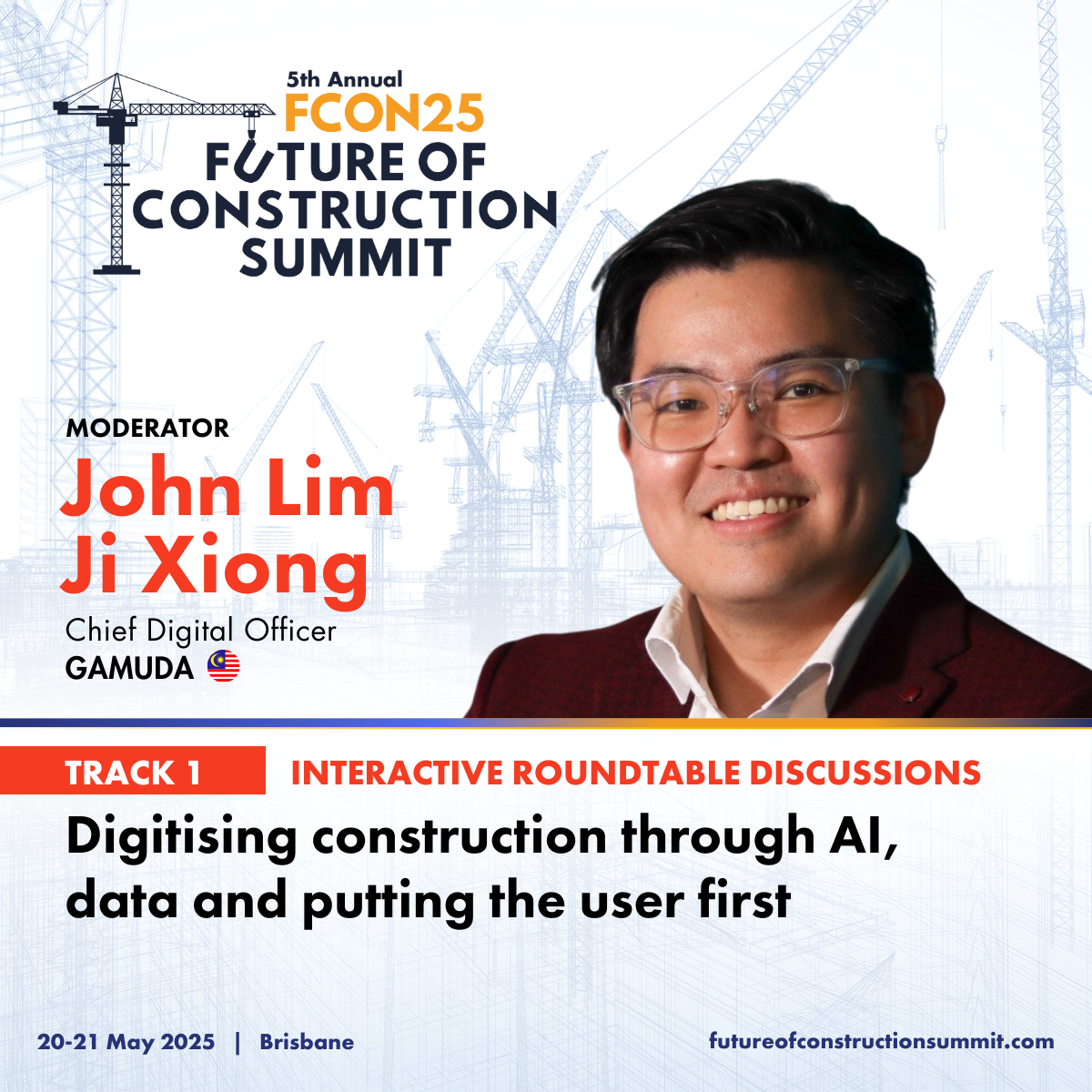
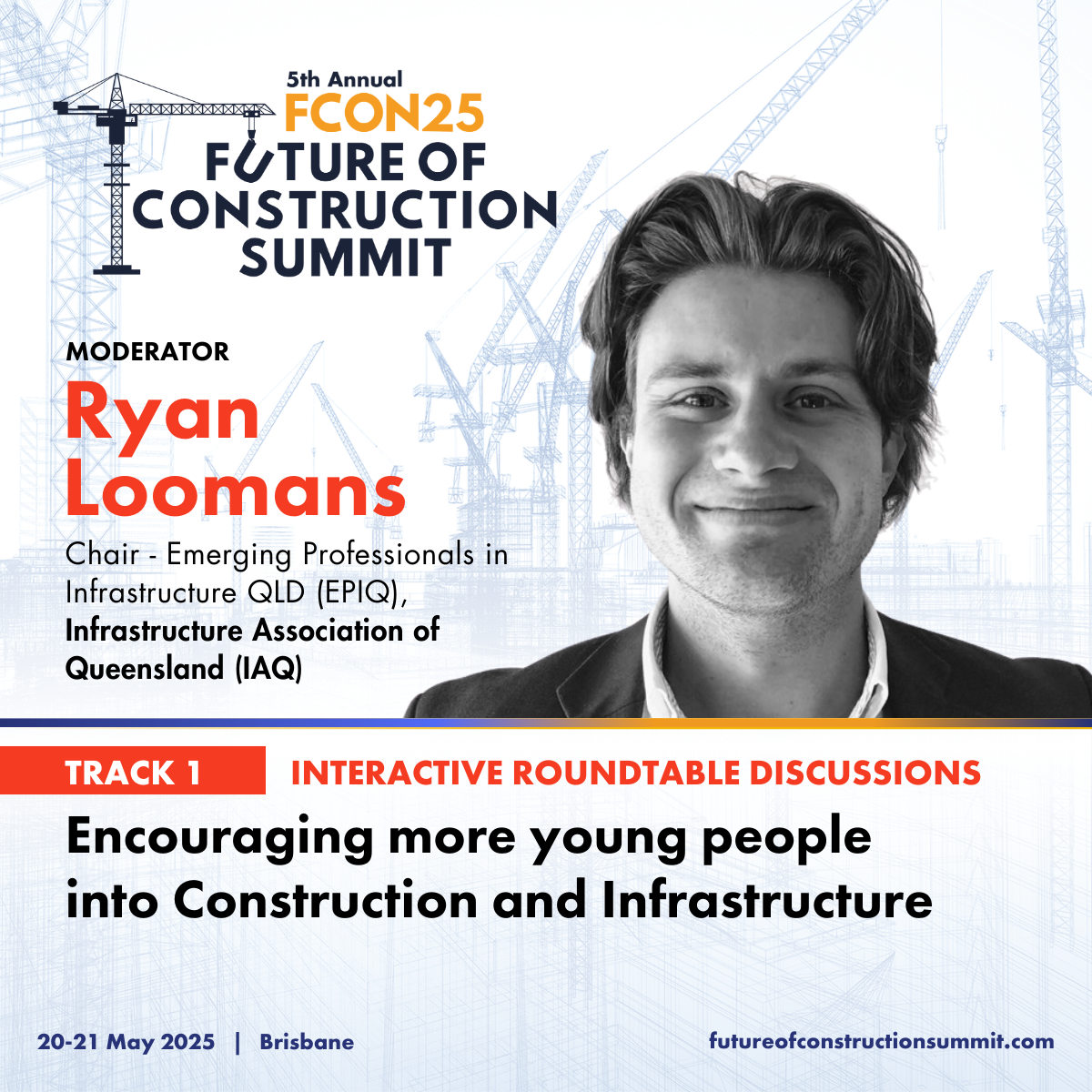
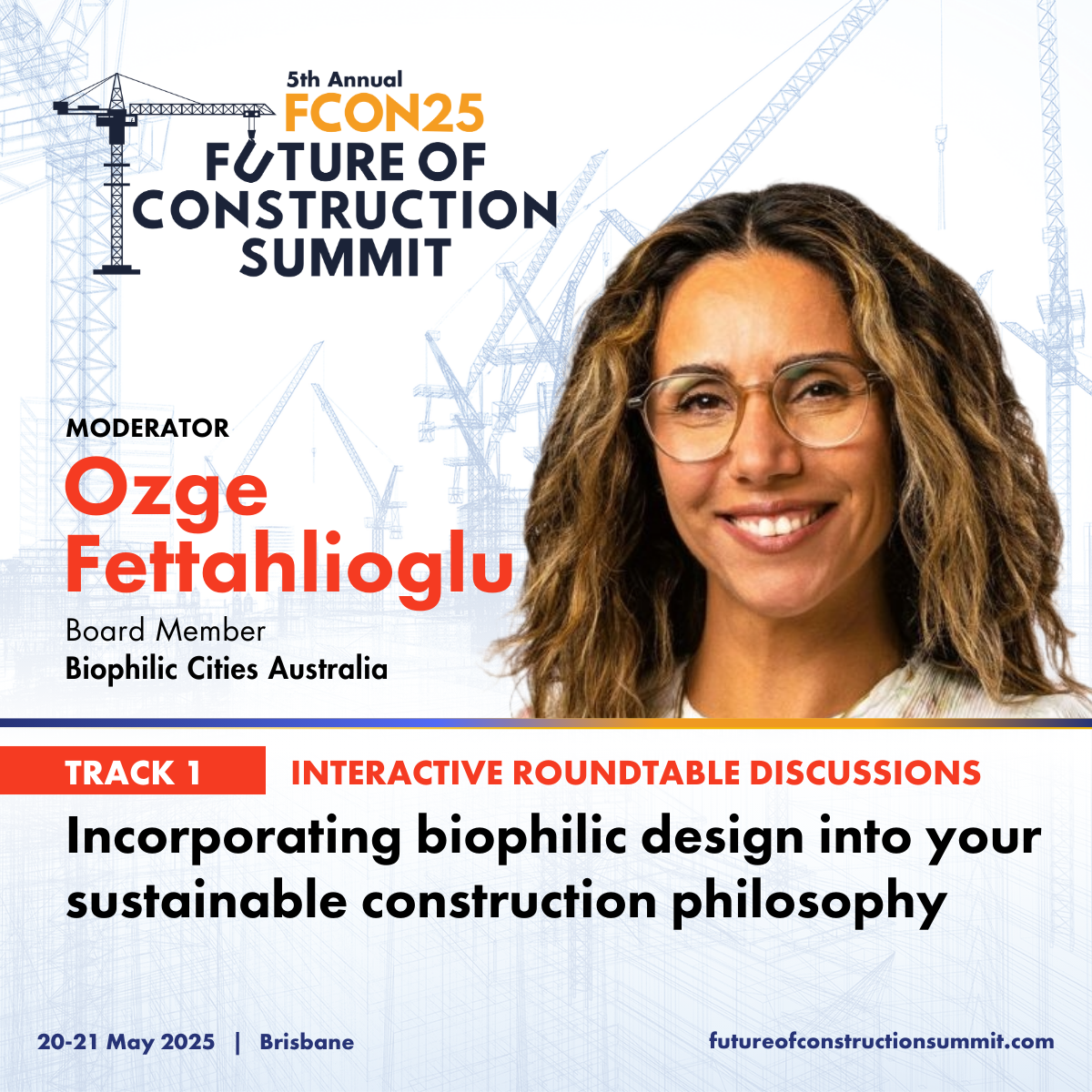
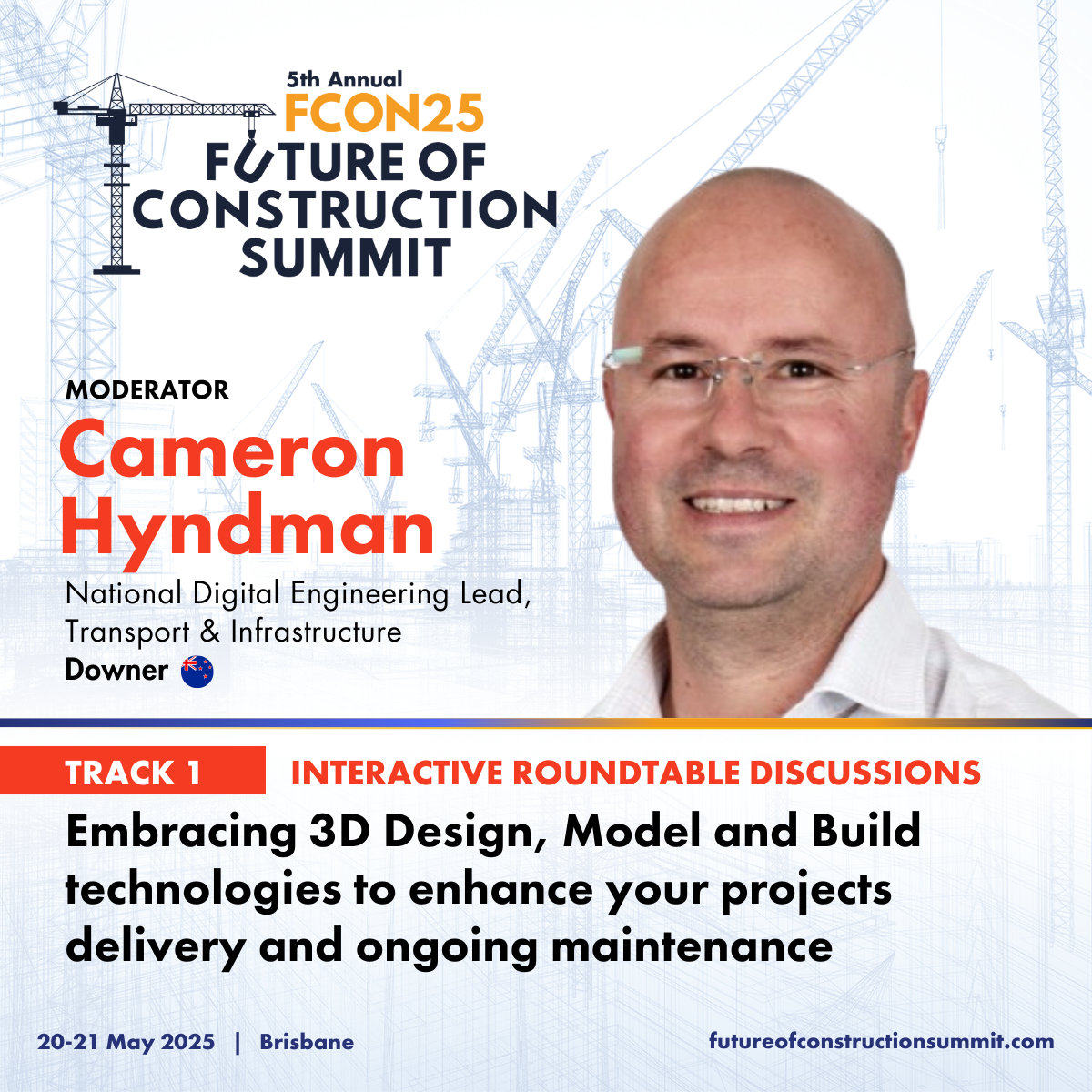
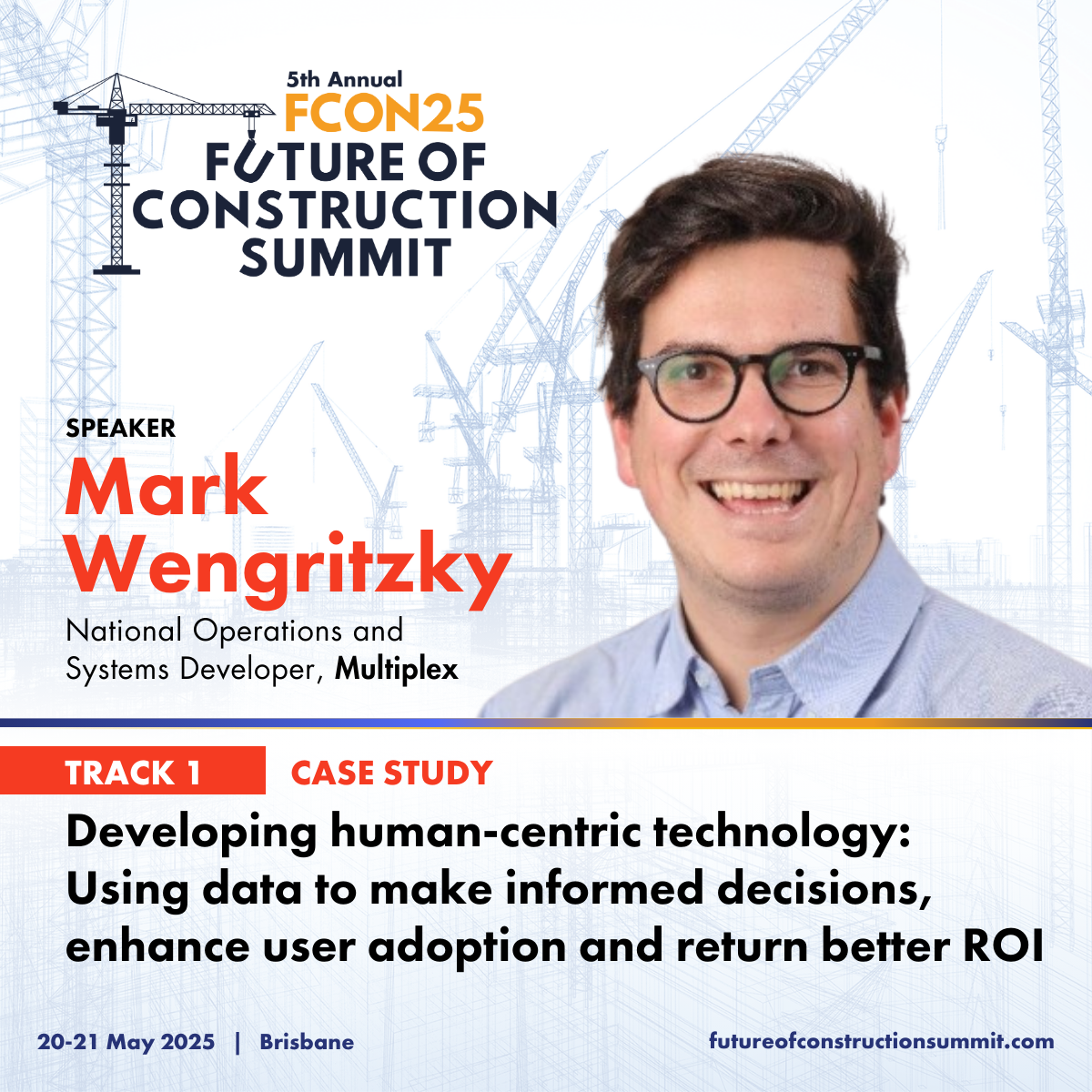
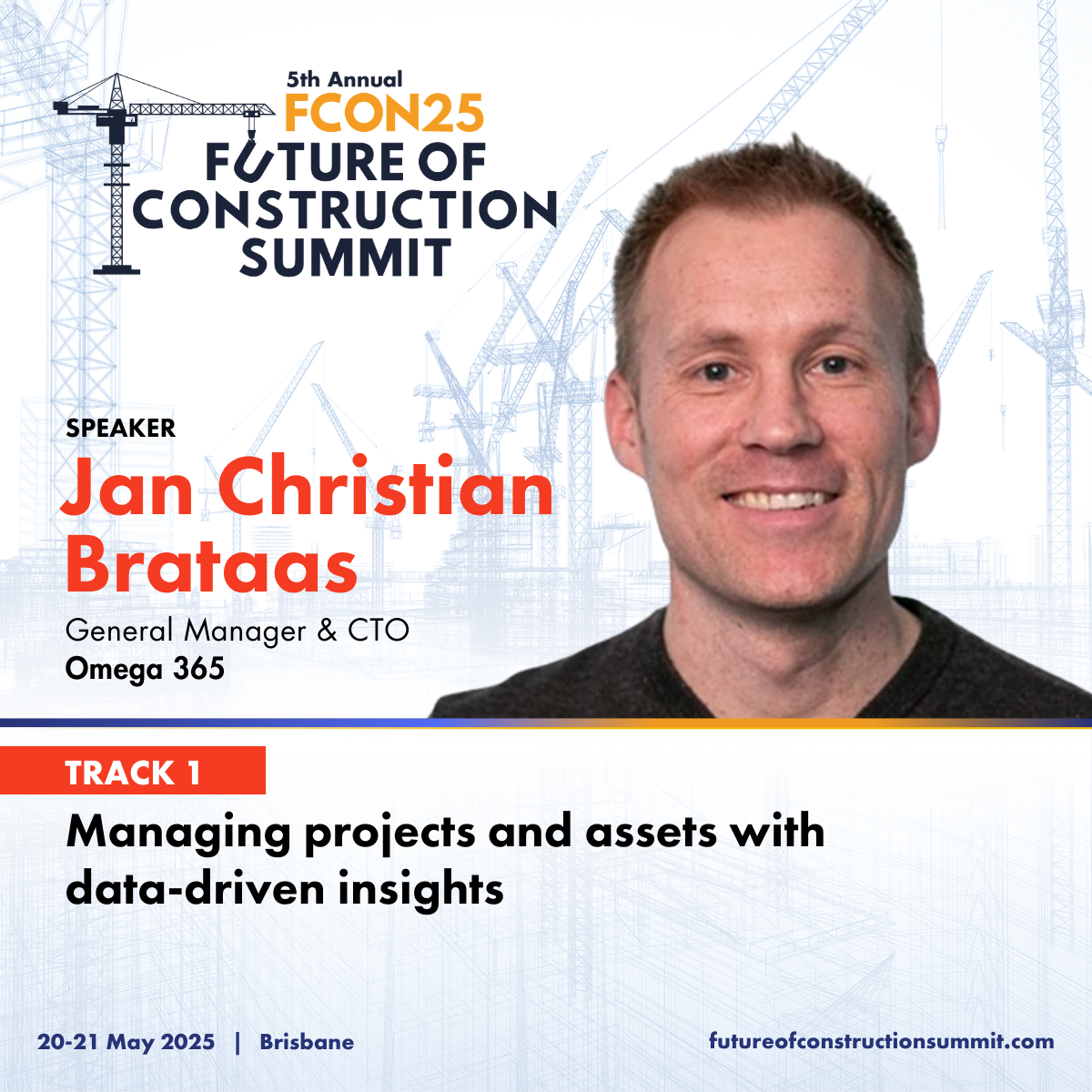
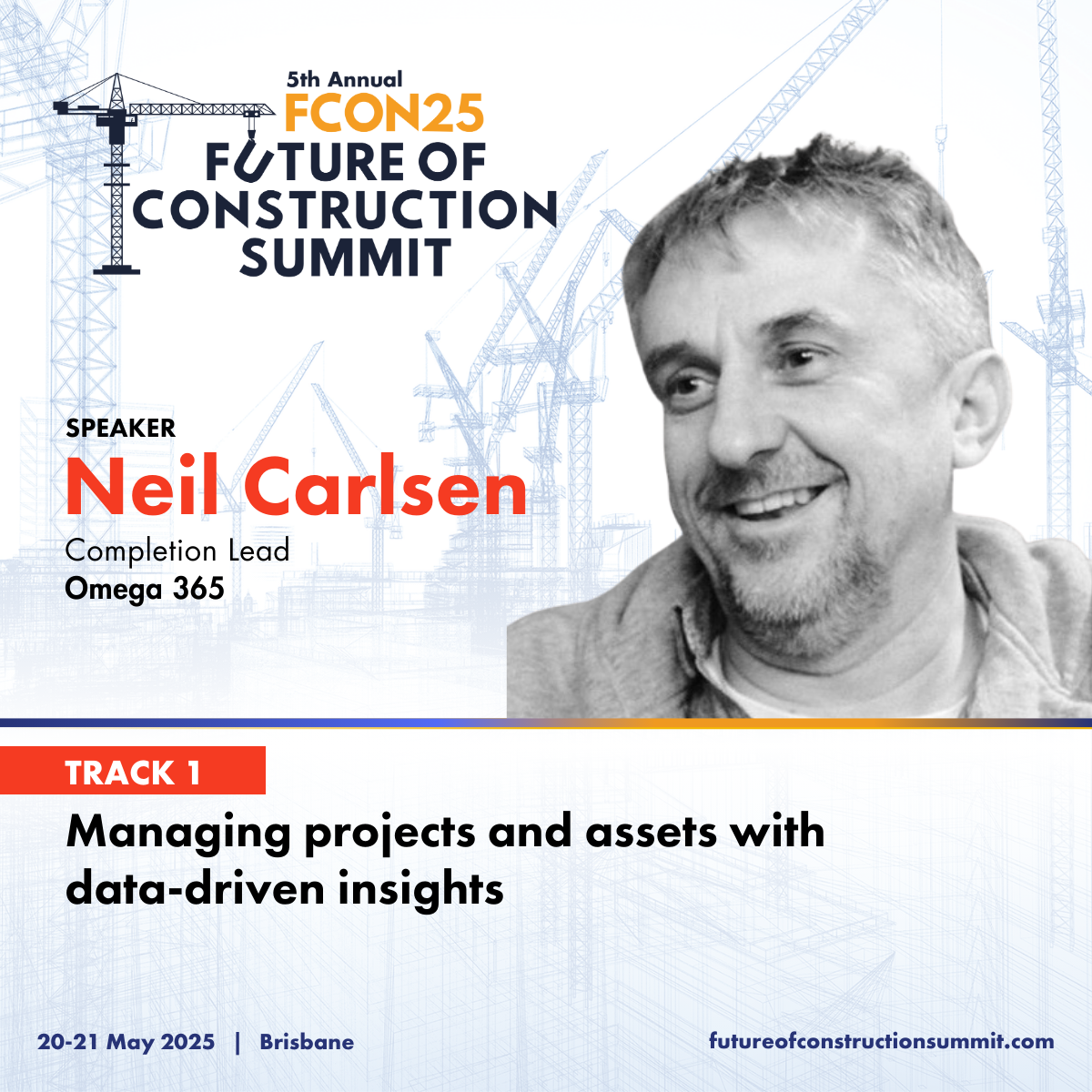
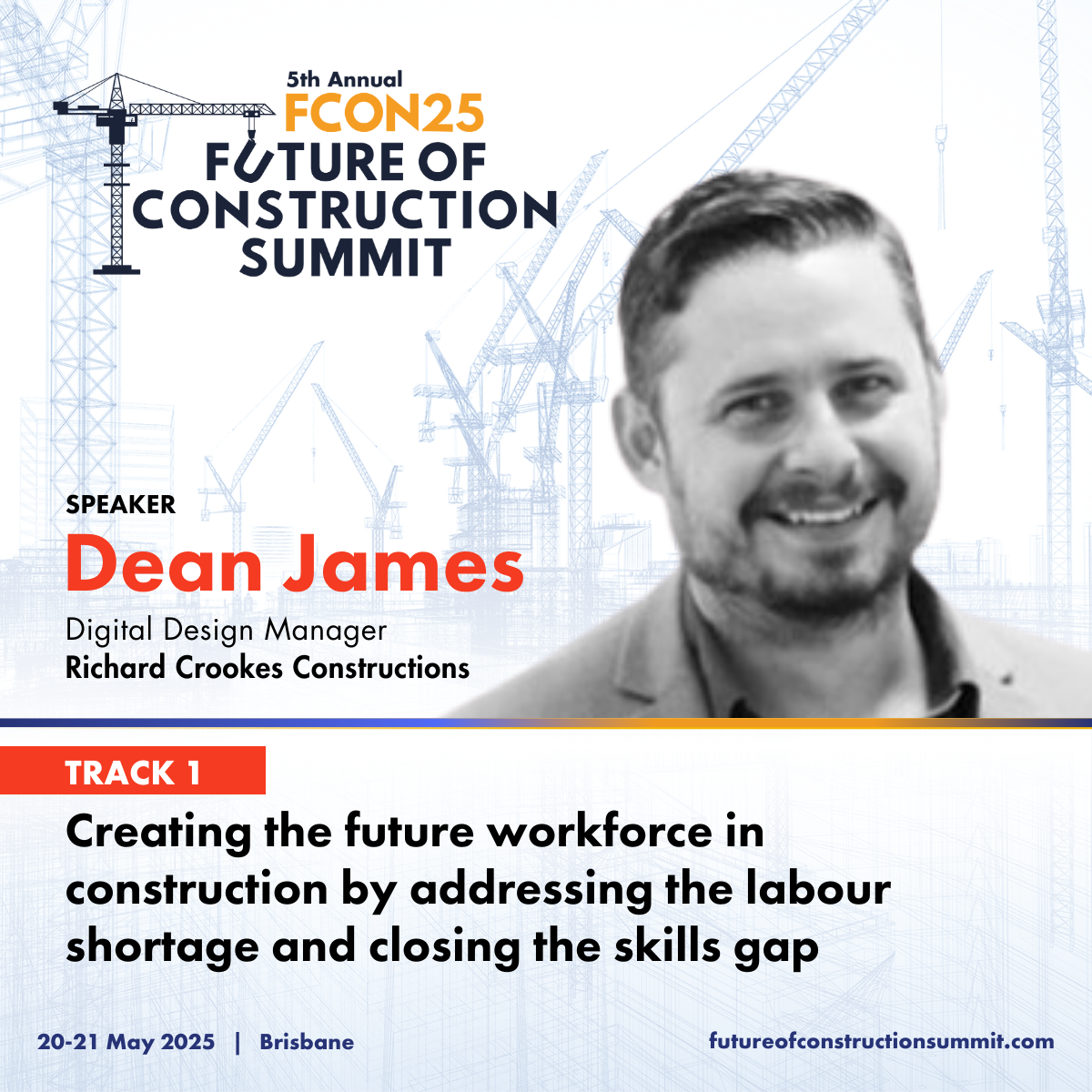
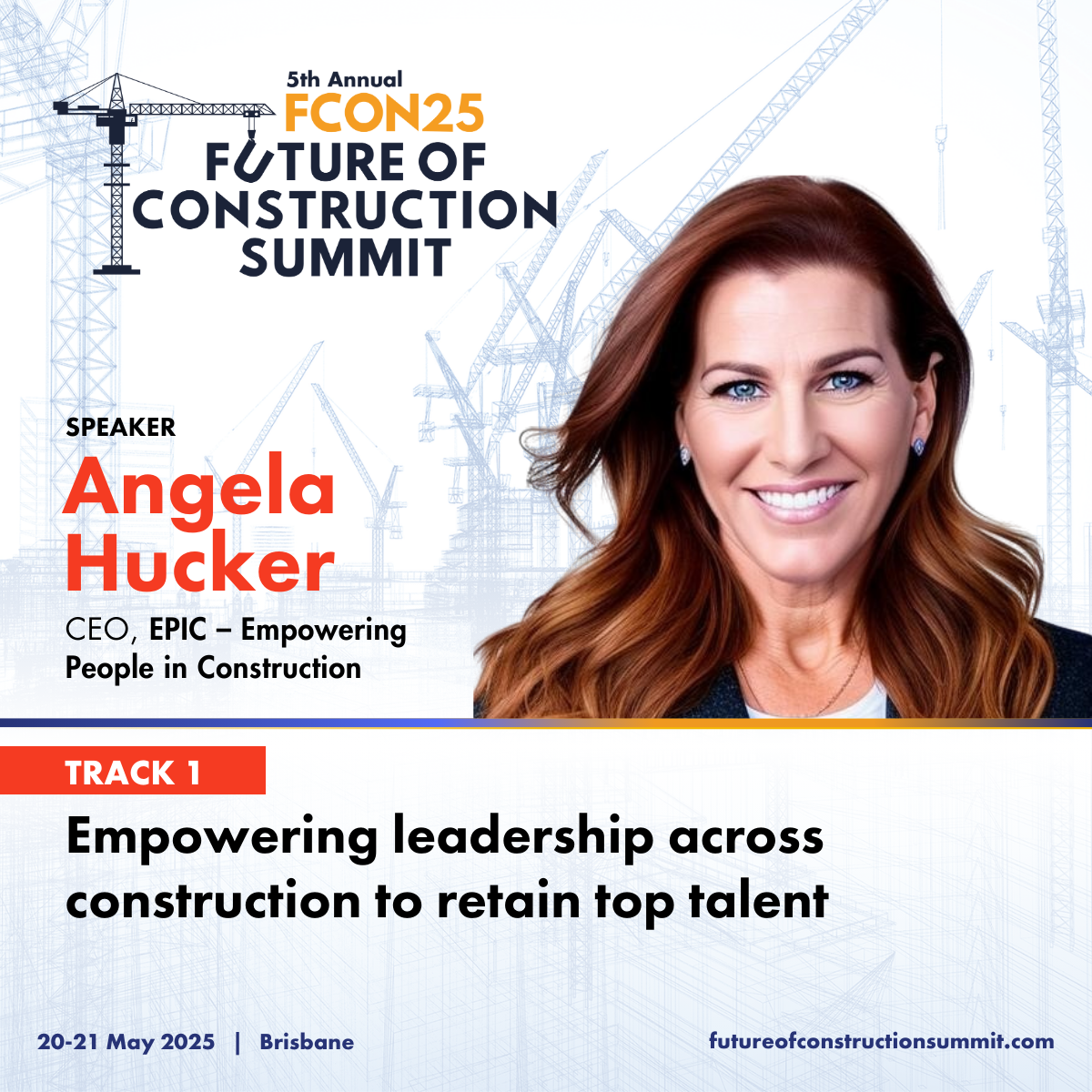
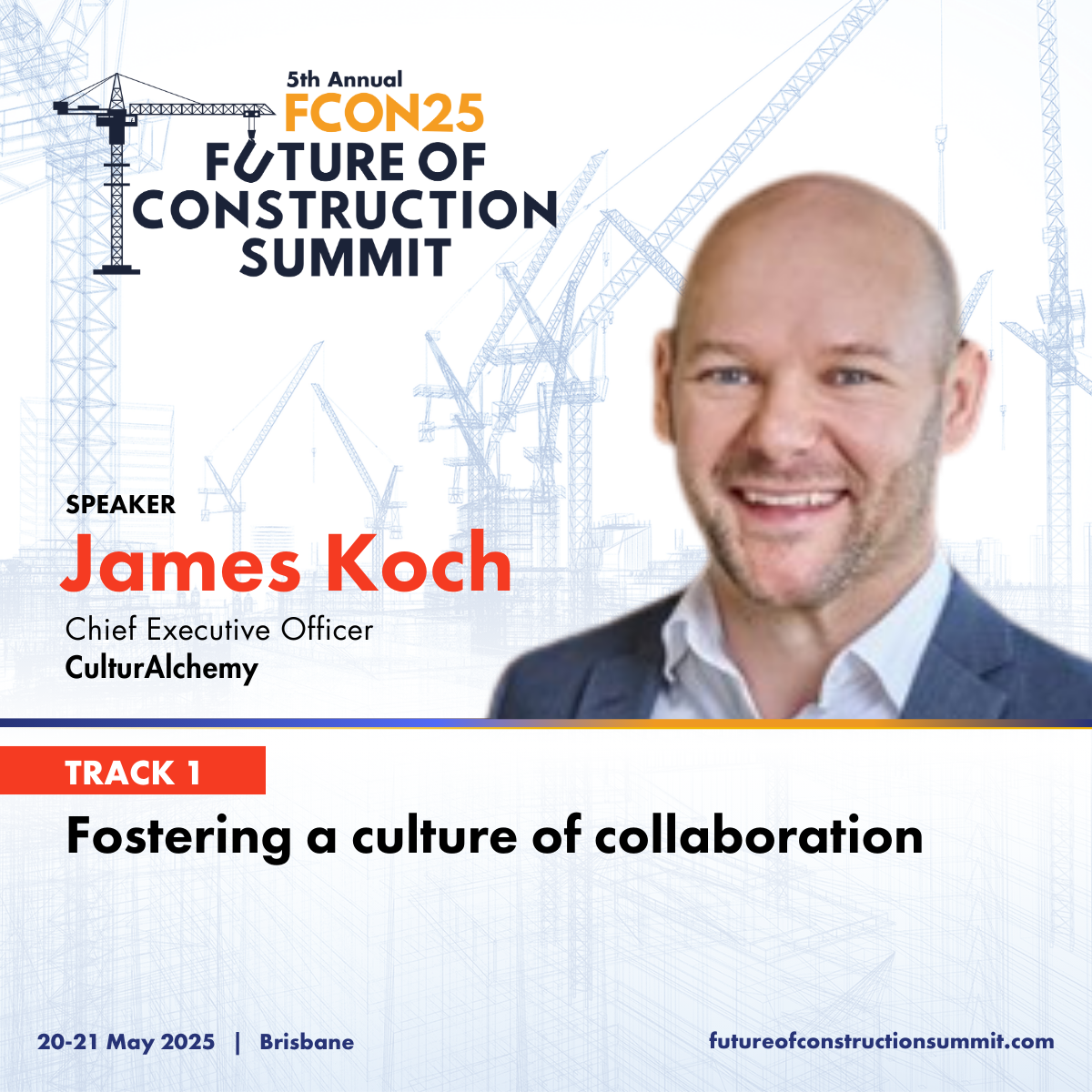

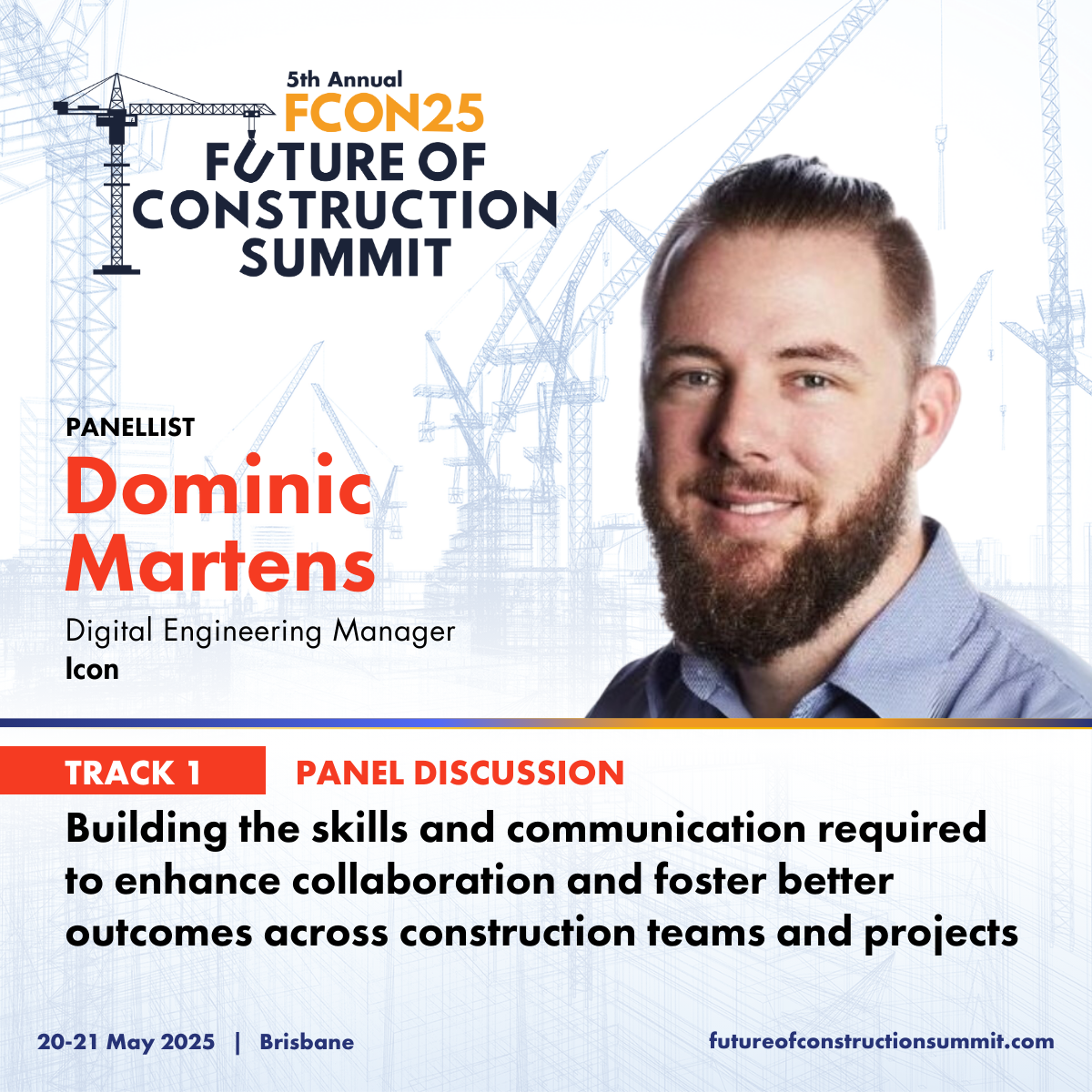
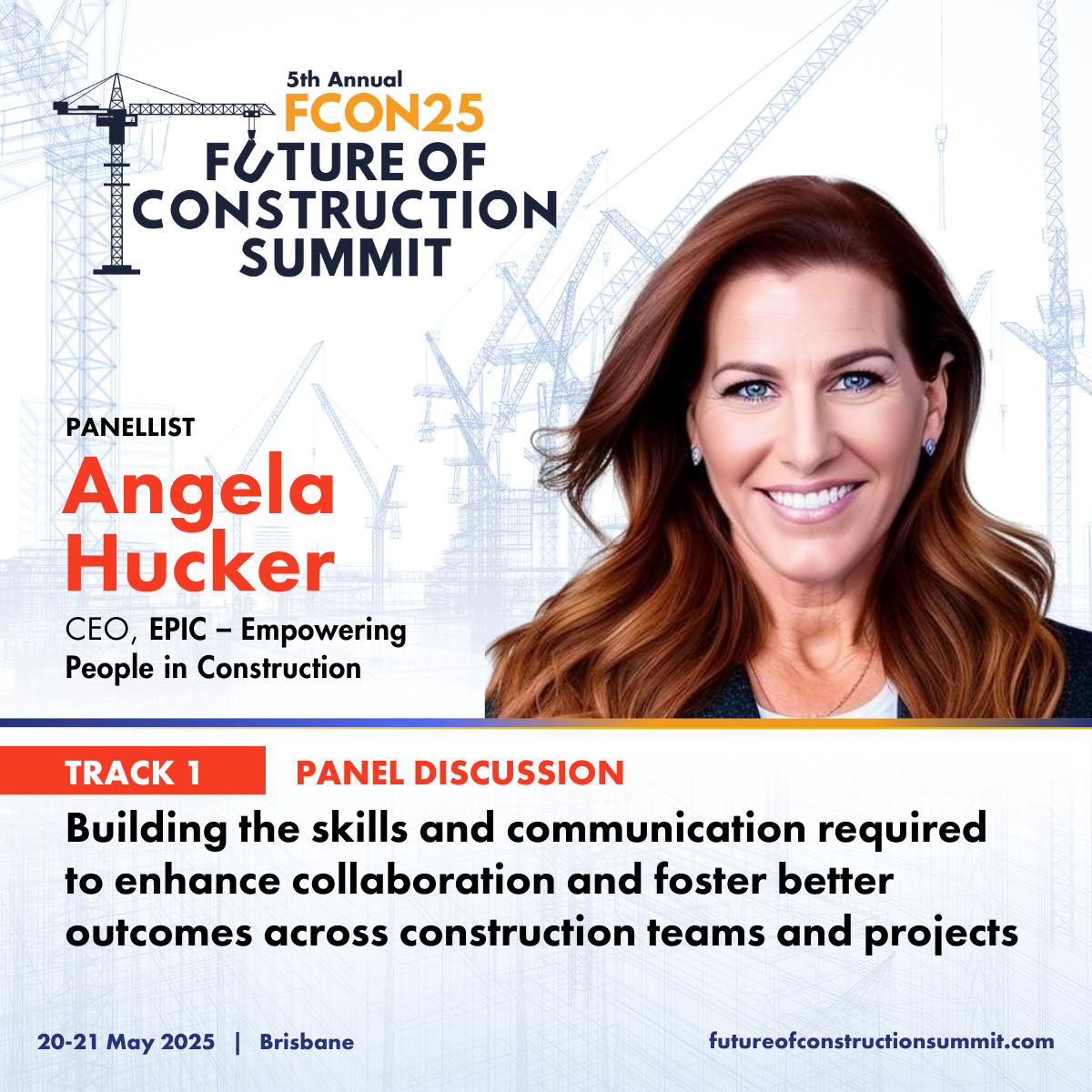
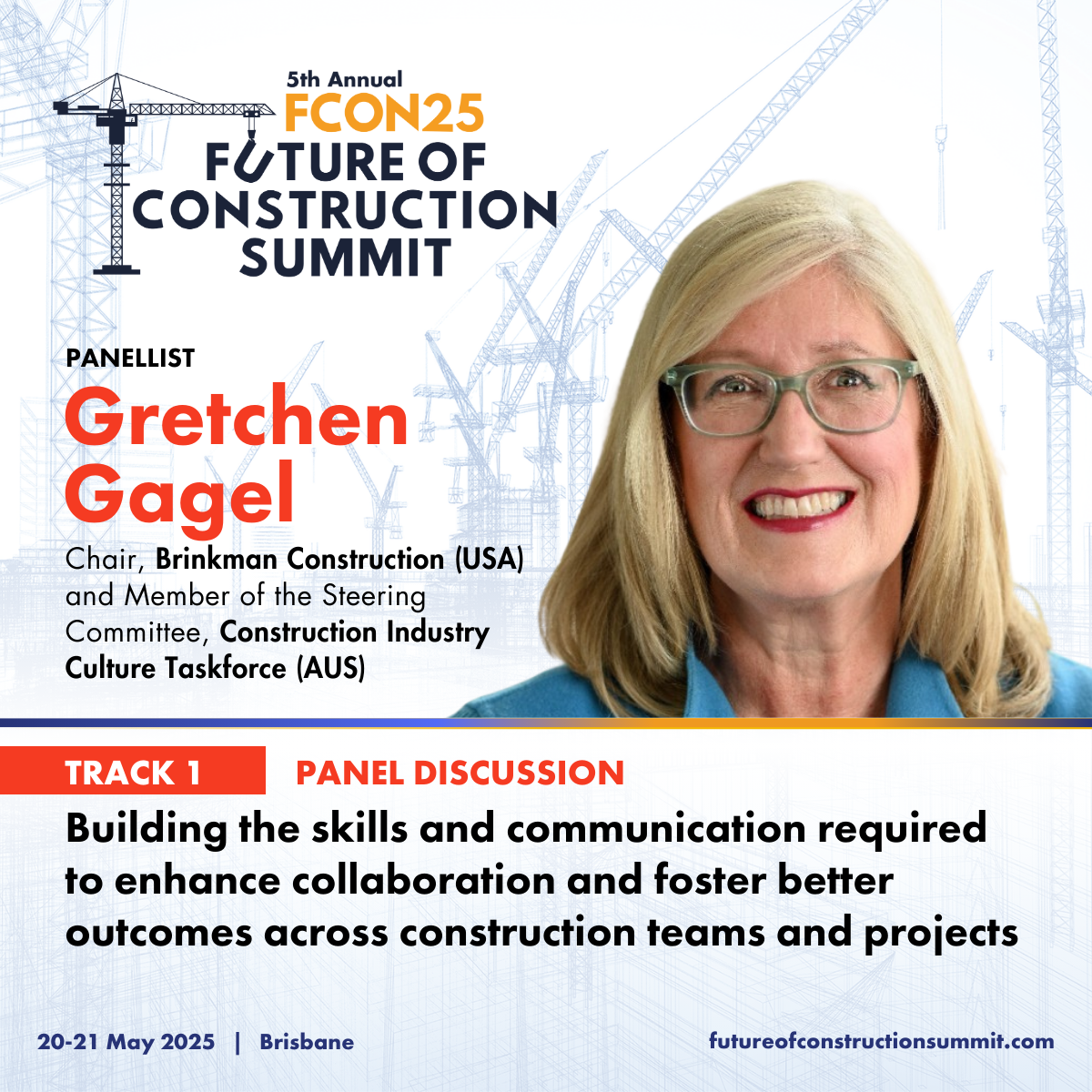
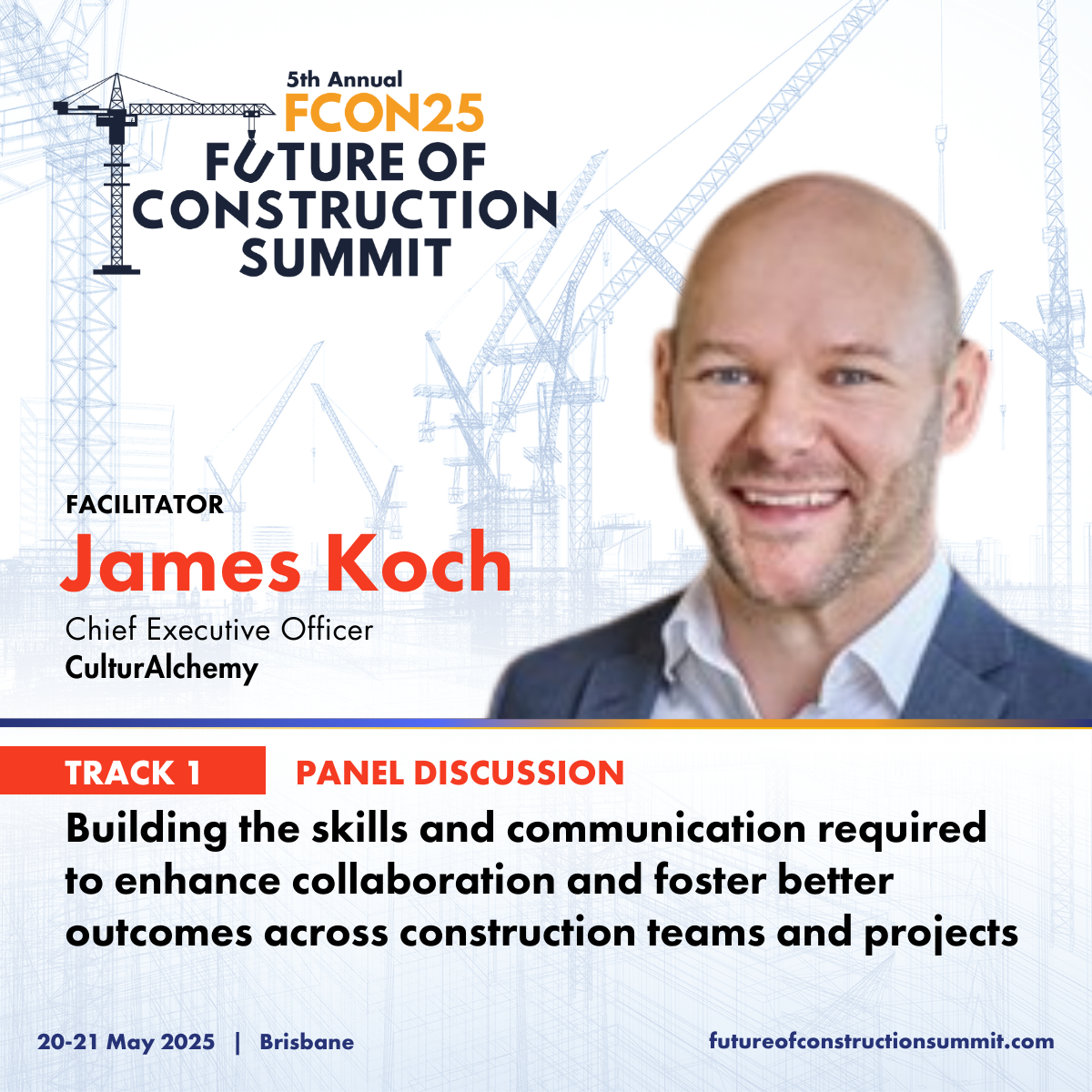
Why attend Track 2:
- Learn from International Experts: Hear from global leaders like Mark Farmer, who have shaped the modernisation of the construction industry
- Stay Ahead of Industry Trends: Discover how DfMA and modular construction are driving efficiencies and sustainability in Australian construction
- Collaborate with Peers: Engage in interactive roundtables and panel discussions to share ideas and strategies with like-minded professionals
- Unlock New Opportunities: Explore how prefabrication and offsite manufacturing can address critical infrastructure needs and contribute to Australia’s sustainable future
- Gain Practical Insights: Understand the economics, policy challenges, and design innovations that will shape the future of construction in Australia
Track 2 is essential for industry professionals, policymakers, and innovators looking to harness the power of modern construction techniques to improve project delivery, sustainability, and long-term resilience.
Secure your spot today to be part of this transformative discussion.
